Fuck the System - 2022
The Project
The board game Rebellations tackles the topic of post colonialism by replacing common tropes of German board games or euro games. In this version, three players form a united role and play against the game itself. The odds are stacked against them, as the game's antagonist – the Flood-of-Emotions – is more likely to take action than the players. However: The rules of the game are not as firm, as they seem to be. As long as an action does not conflict with the rules, anything goes. And observing players will soon come to notice – that's a lot.
GENERAL INFO
•Board Game
•Card Layout done in InDesign and Illustrator
•Fourth semester project at the HTW Berlin
•Team SveLuLiMaKa: Svenja Bette, Lucy Methner,
Lilly Steger, Mars Tonnelier, Kai Bittighöfer
My Role
• Research
• Layout Finalization
• Icon Design
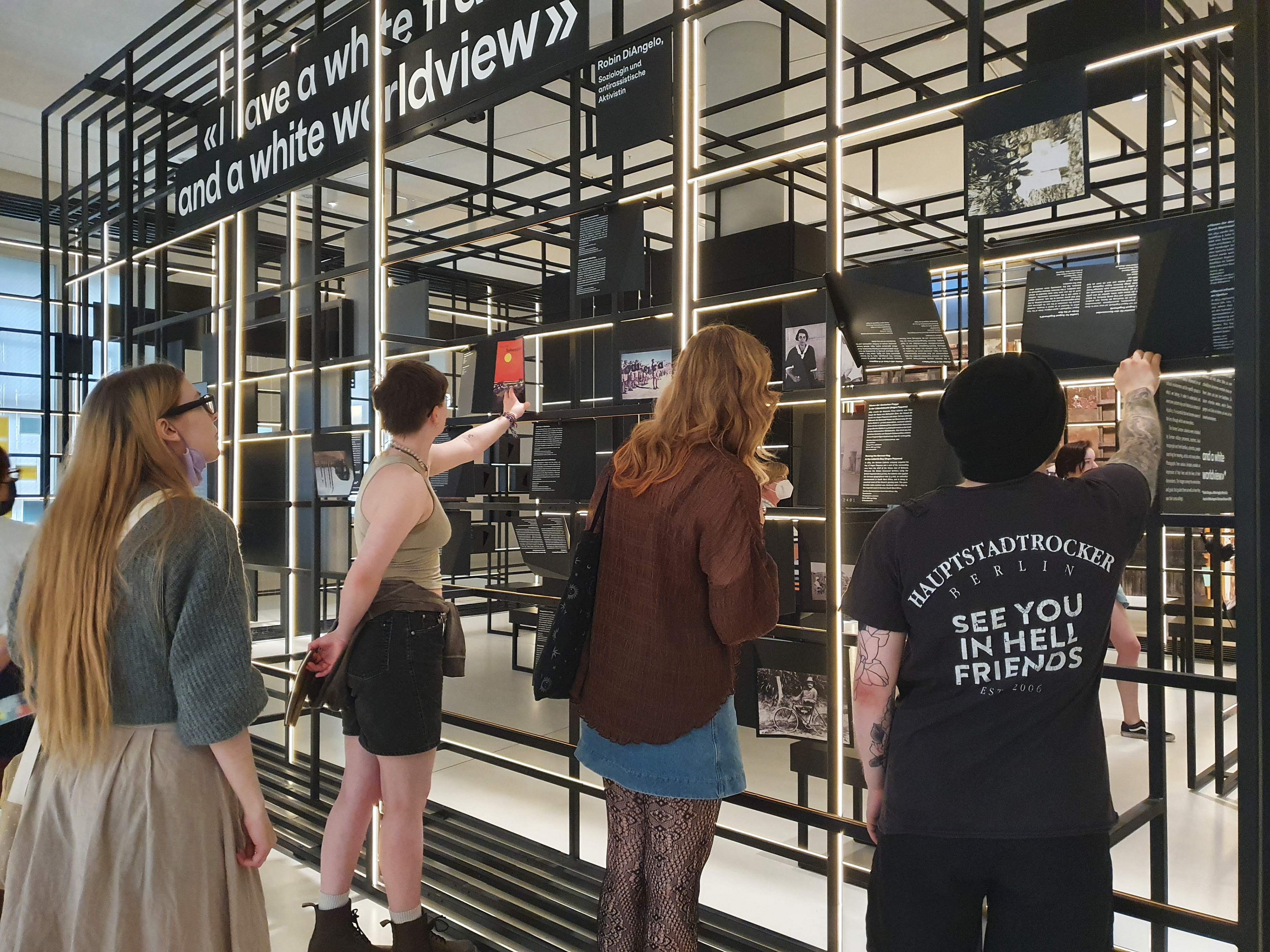
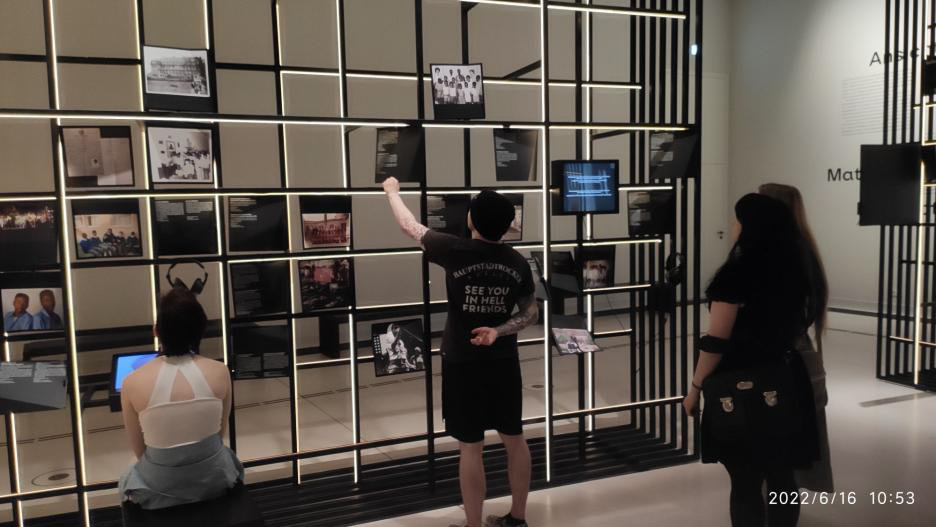
For our research we visited the Humboldt Forum and their exhibition about German colonialism in Africa.
Progress
For this three-week game jam project we decided to work on a game that does not include programming. As we were somewhat tied to the prompts offered to us at the beginning if the project, there was one option, that would enable us to work on a board game. However, the overlying topic had to be post-colonialism. Our project had to reflect on the theme of colonialism in the German board-game or euro-game.
This prompted great research into the theme of post-colonialism.
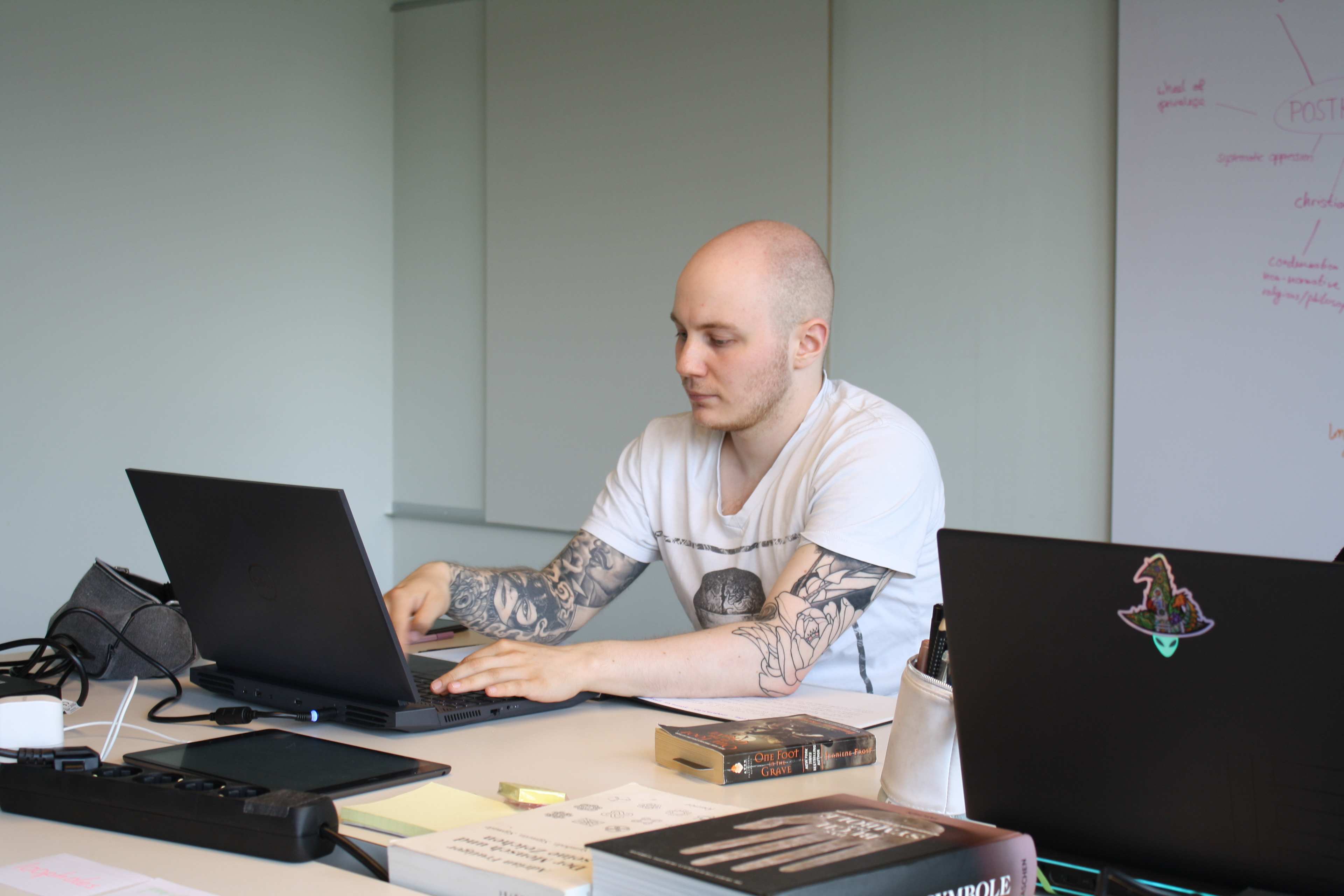
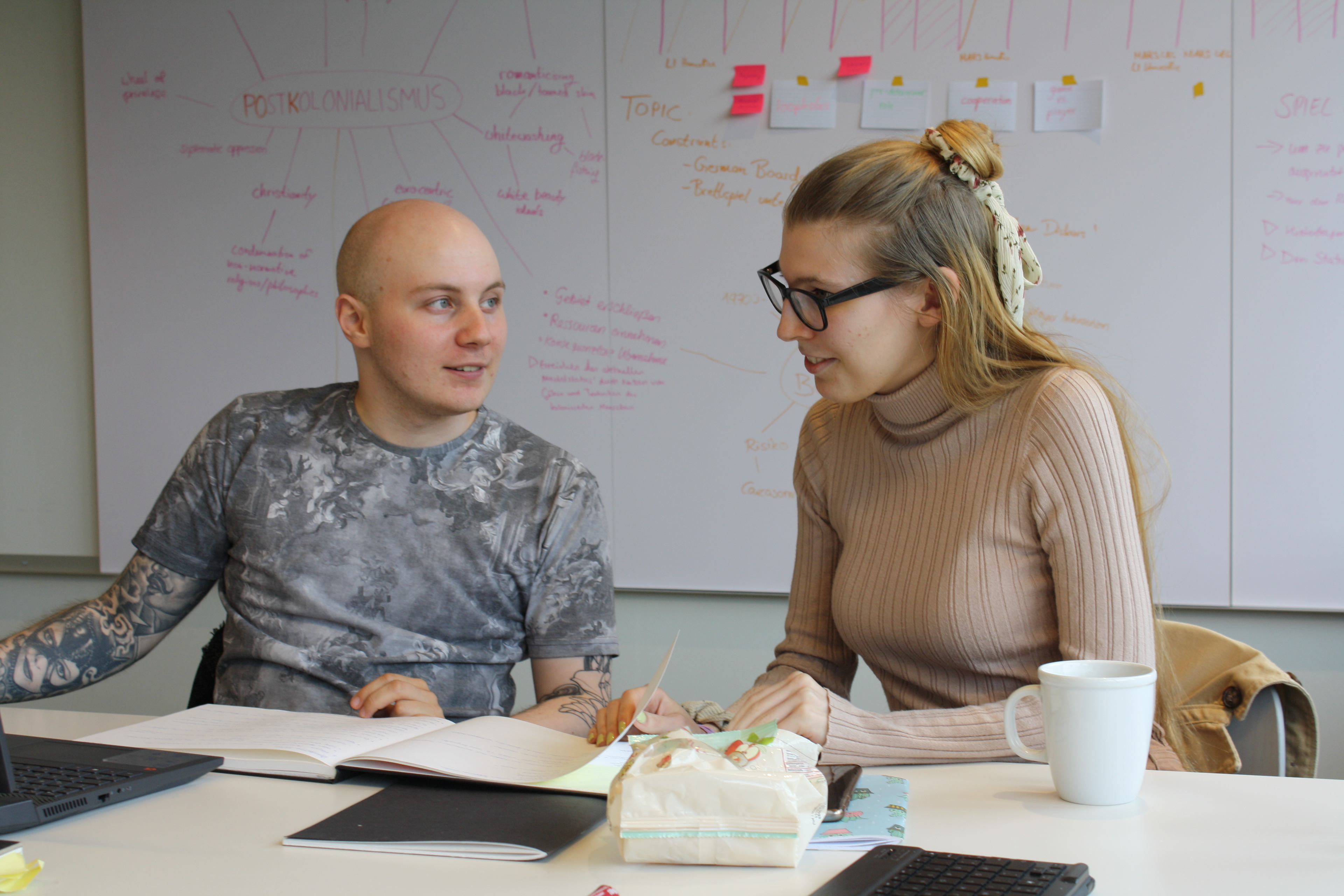
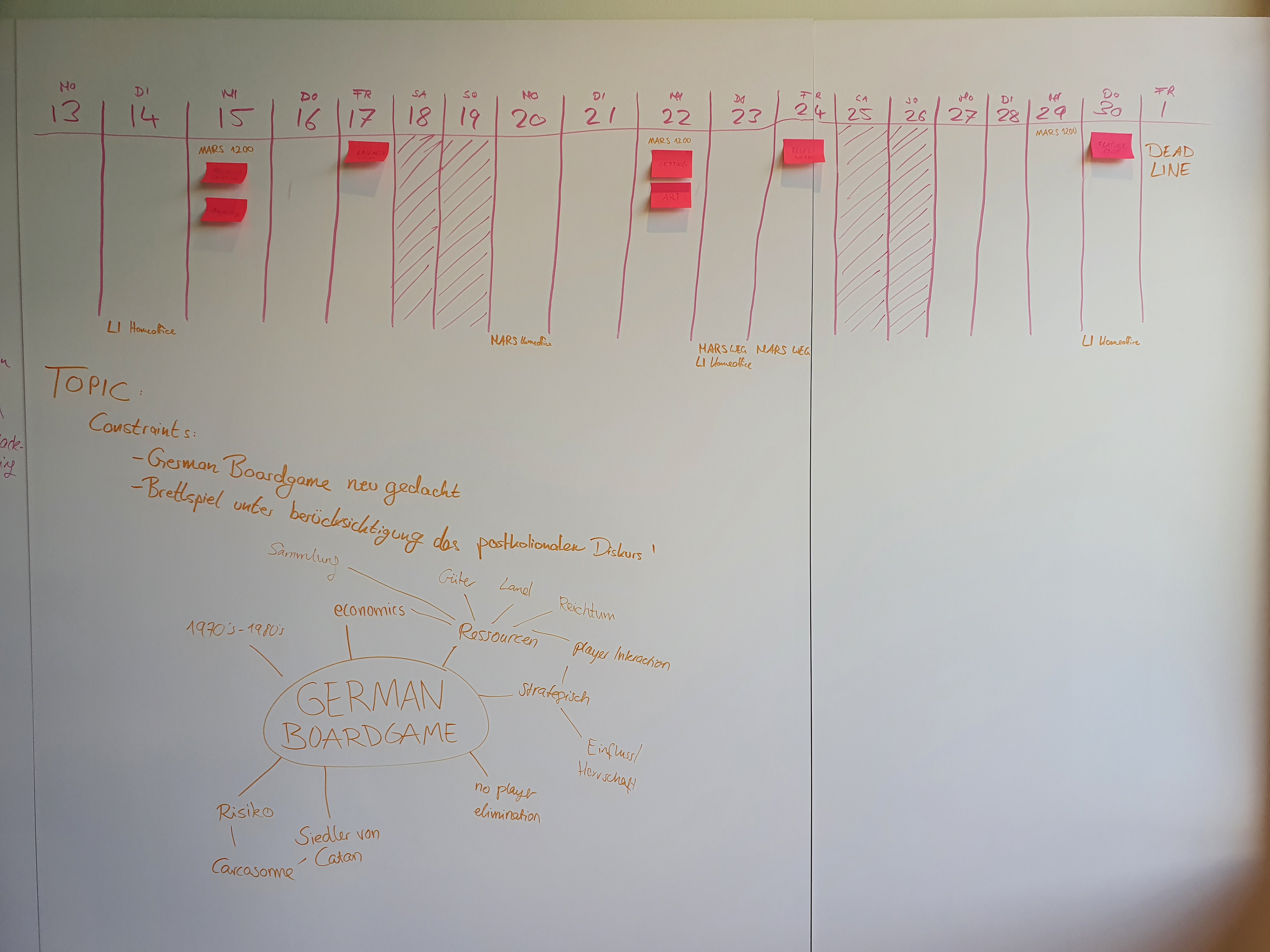
We created several mind maps. What do we associate with post-colonialism? What are key features of German boardgames?
It was quickly very clear, that we had to be extremely careful with this topic and our interpretation of it. After doing some research, we had an open discussion about what we wanted to avoid, what we were thinking about the topic overall and if we had any ideas on how to tackle it in the form of a board game.
After extensive research and brainstorming we settled on the concept of a team of players playing against the game itself. In order to win the game, player would have to exploit loopholes within its rules.
The concept we went through with featured resources, that both players and game have to collect/protect. To decide wether it's the game's or players' turn, a dice would be thrown. The corresponding side dictates either movement or card-draw. The cards (player and game specific) describe an action that can/has to be taken. Within these cards lies the possibility to find and exploit loopholes.
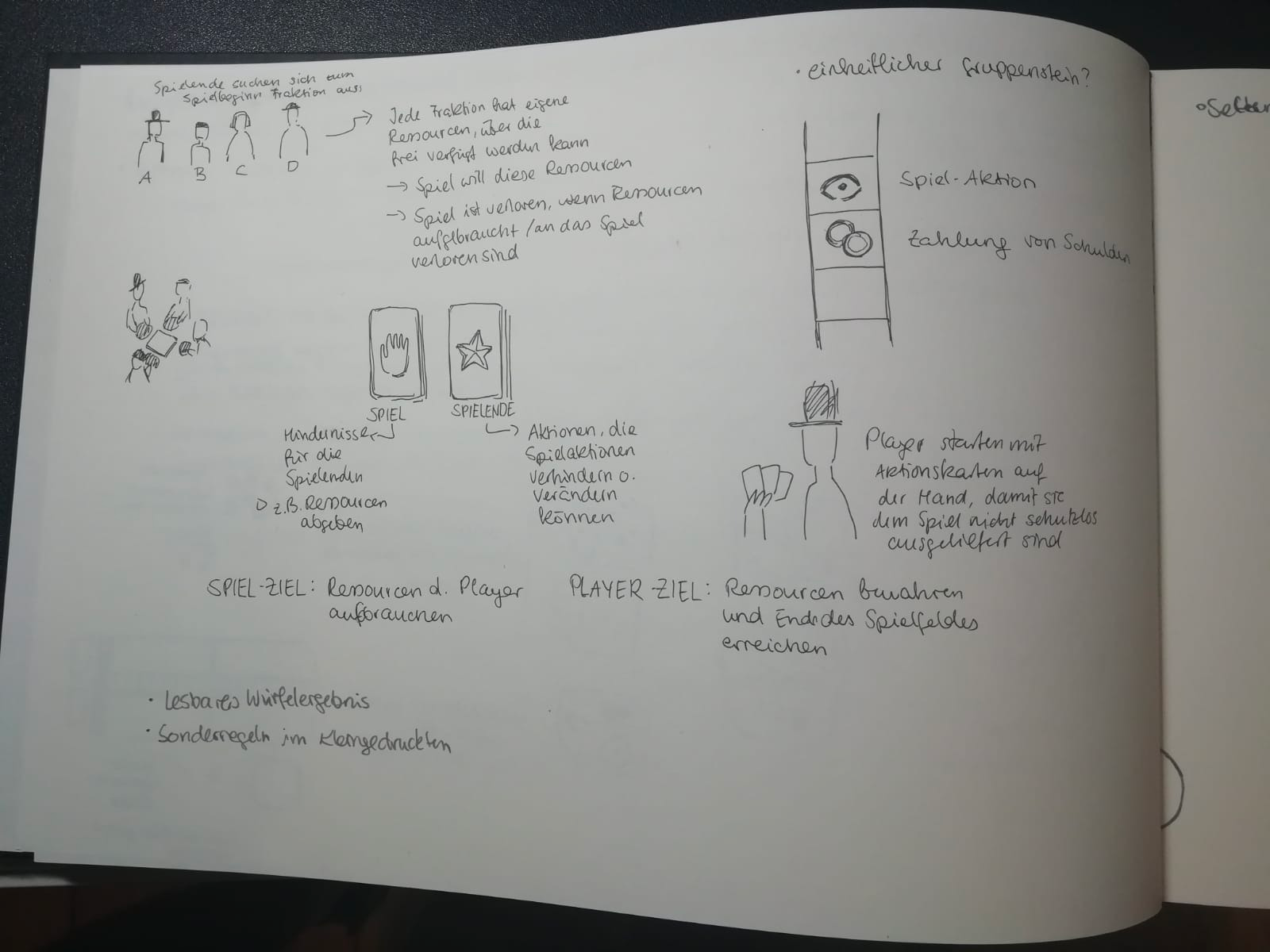
Some first ideations of ways to implement the players vs game mechanic
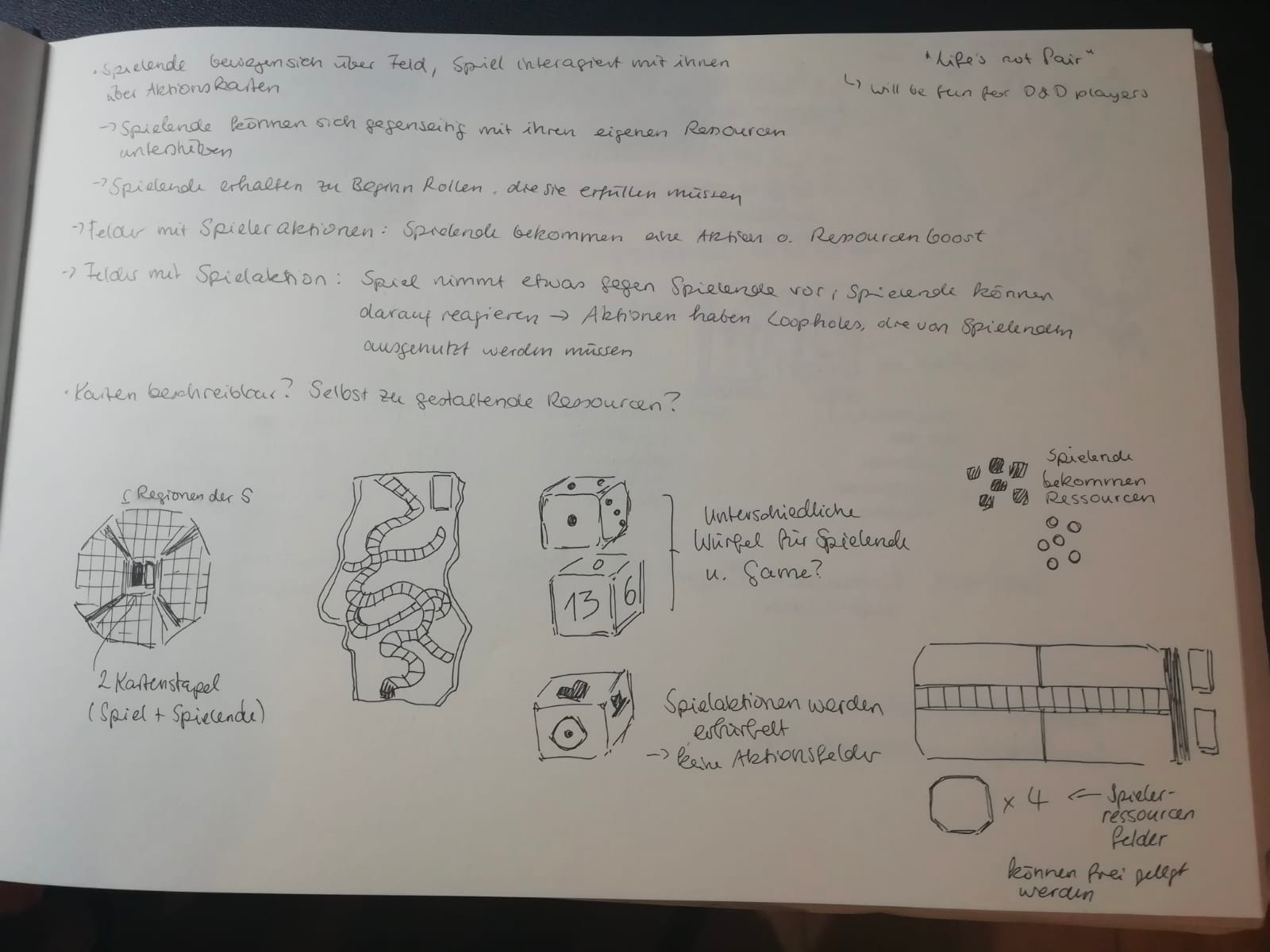
Possibilities of a game board
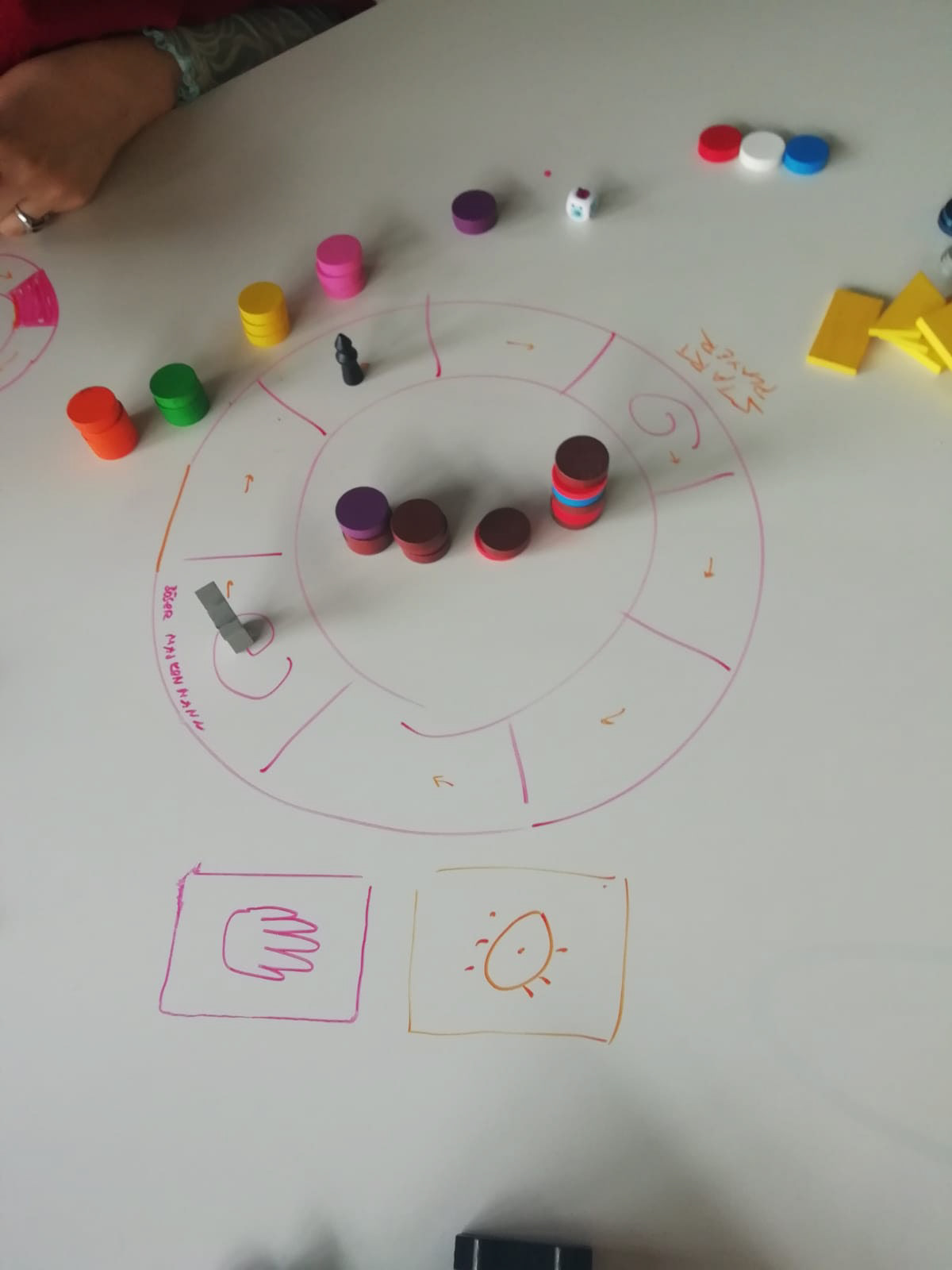
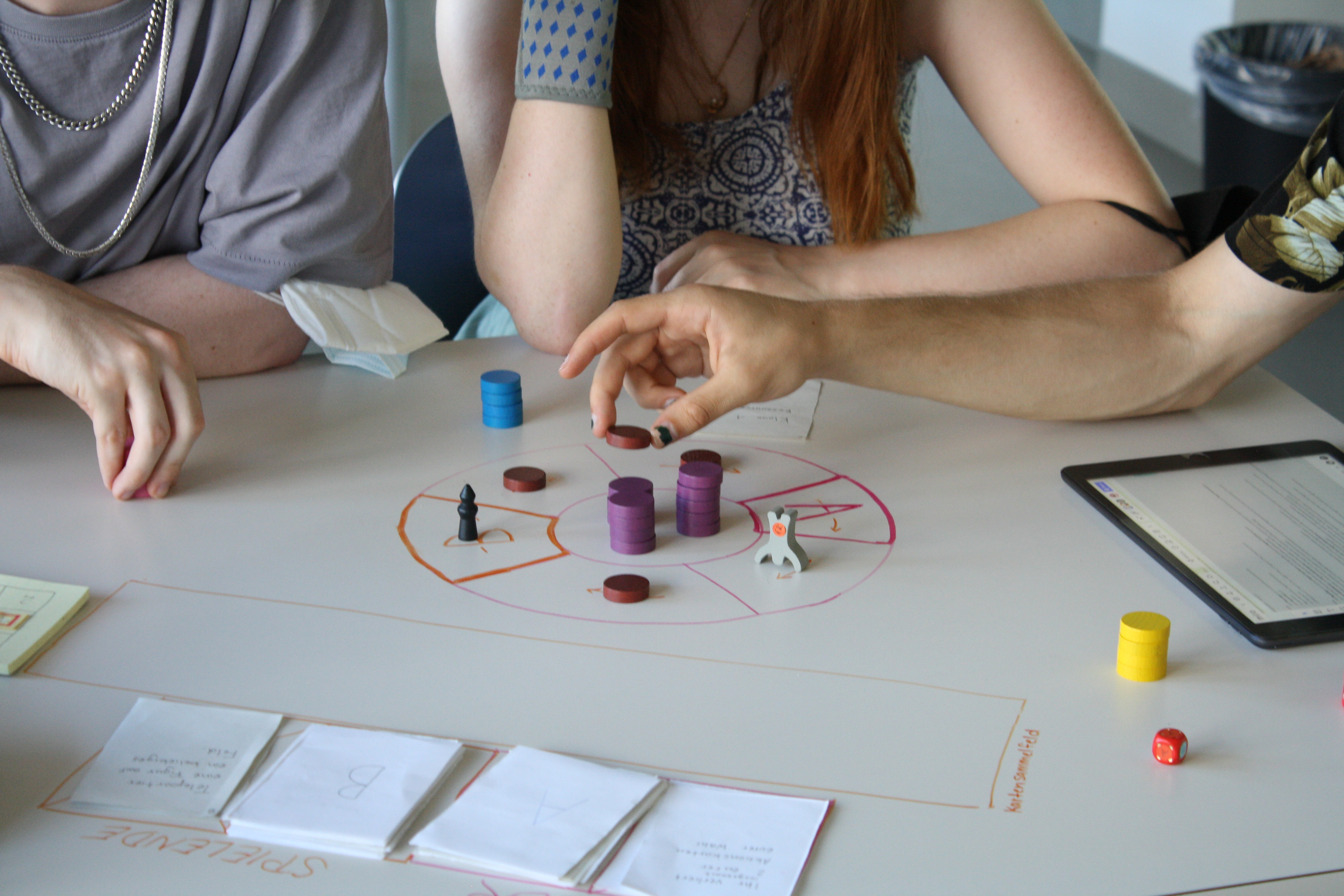
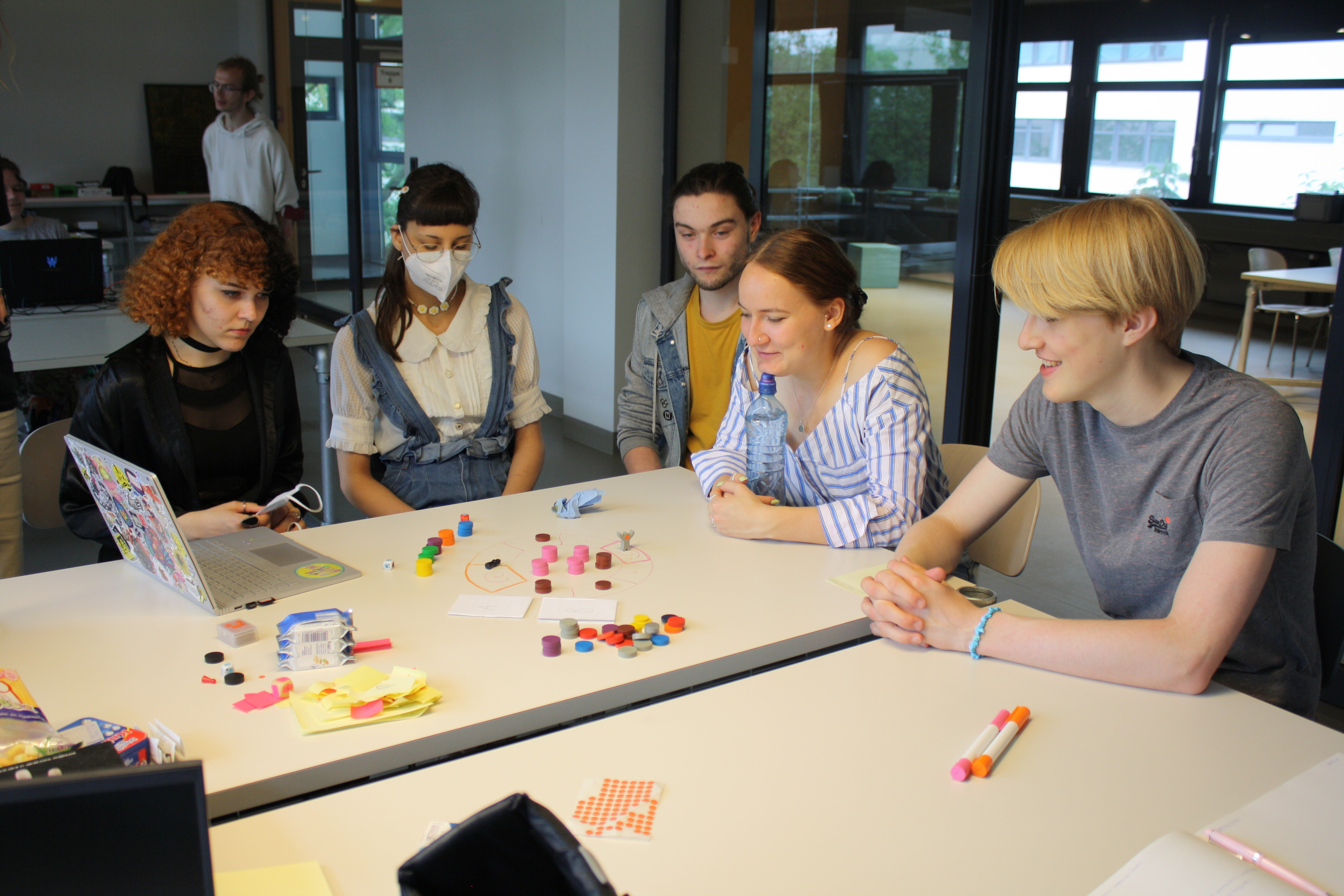
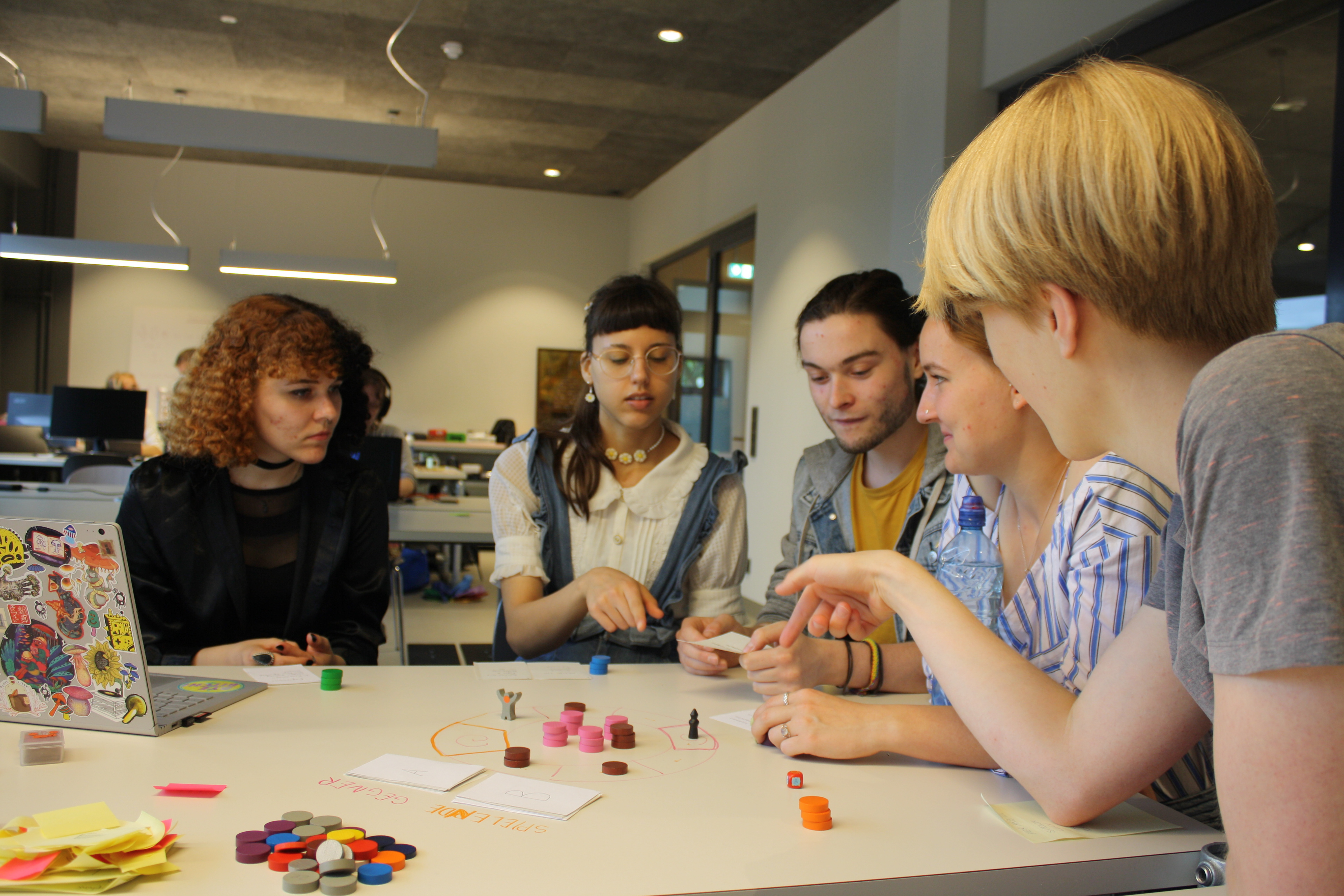
During our play testing we made the observation, that the game almost functioned as a character test. We purposefully did not tell the players about the hidden challenge of the game. Some of them were irritated, because some of the cards did not give them clear instructions, while other players took that chance and exploited the cards however possible. After observing these exploitations being favorable for them, the hesitant players ended up joining, which would lead to their win.
We also changed to dice from a six-sided to a ten-sided one. To make the entity of the game more cruel and less random, we increased the likelihood of a game-action taking place.
While the text of the cards during play testing were plain descriptions of actions, we knew that in oder to make the game more immersive, a more flavorful text was needed. Those texts were supposed to reference actual historical events while not being literal or too specific. While the players might chuckle at drastic actions the game would take, an additional short text about historical context would function as a reminder, that something similar actually happened and truth often is crueler than fiction.
Our game elements during our first playtests
The first drafts for possible card-layouts. In the beginning we wanted to add illustrations. We decided against it, as it carries too much symbolic meaning and gives way for interpretations we wanted to avoid.
Color-codes, top to bottom: Description, card-type, historic context, title, illustration
Overall, the game features four types of cards: curses (a long lasting effect potentially resulting in a punishment, which can either affect one player or the entire group), rebellions (would redistribute game resources on the board), objects (affecting cards or resources) and movement.
To make it clear for the players what they drew, decided to give them symbols.
Setting
By this time, we decided to use a very abstract setting. A lot of setting ideas, upon further research or given thought, gave too much room for an inappropriate reading. The personification of evil in mankind was portrayed as the Flood-Of-Emotions, the resources themself became emotions and the player character was humanity.

Affects single player

Affects player-group

Curse

Rebellion

Object

Movement
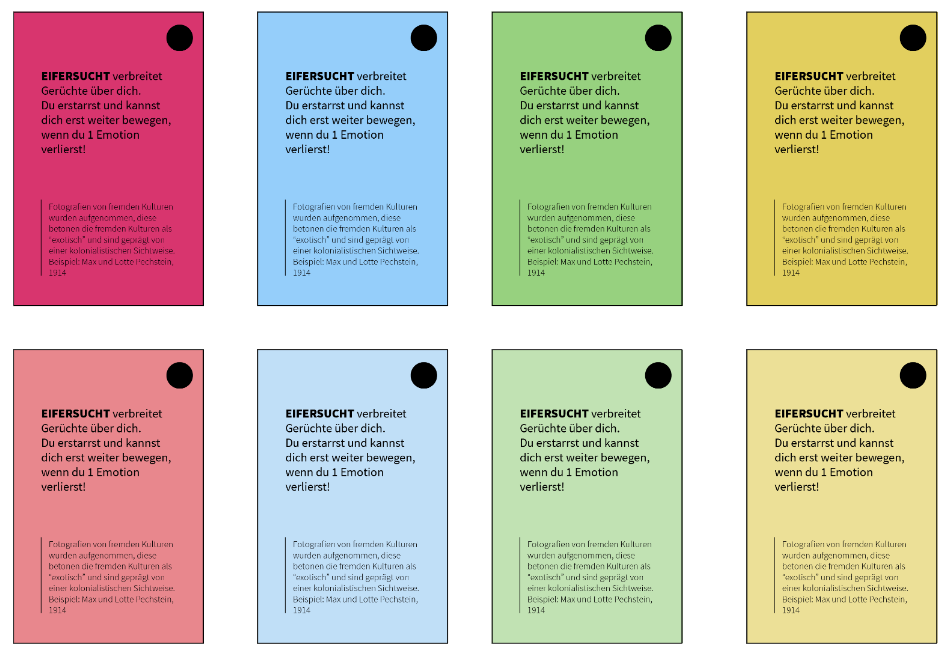
My first drafts for the card colors.
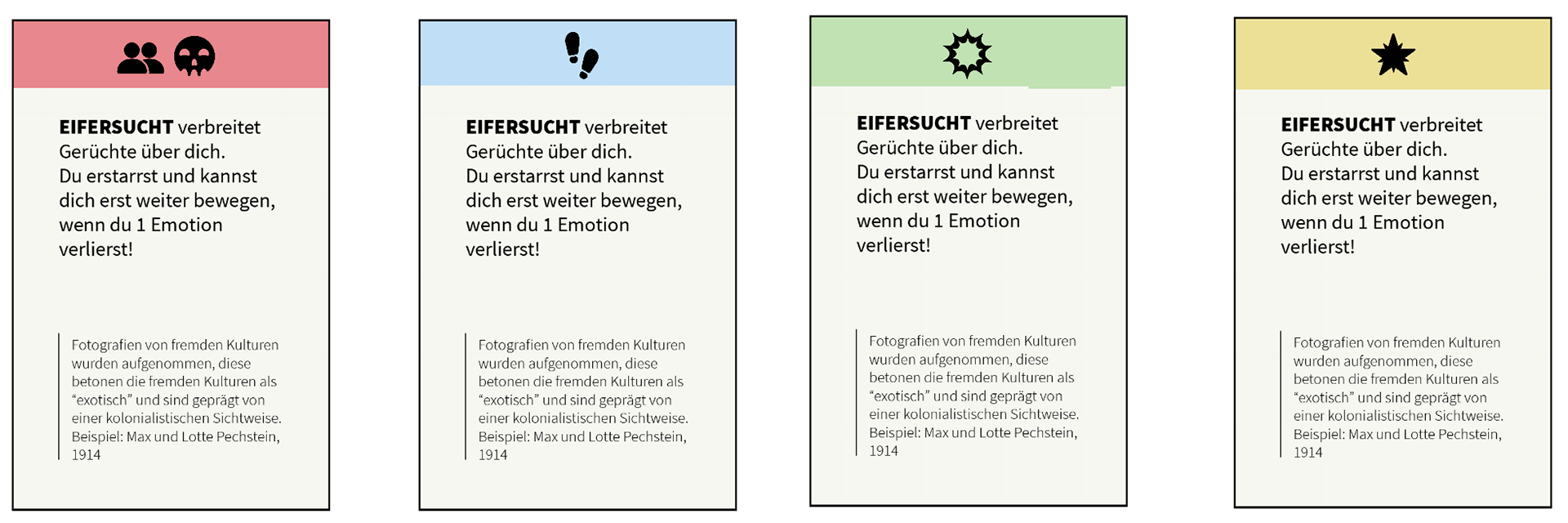
Card drafts with the new symbols.
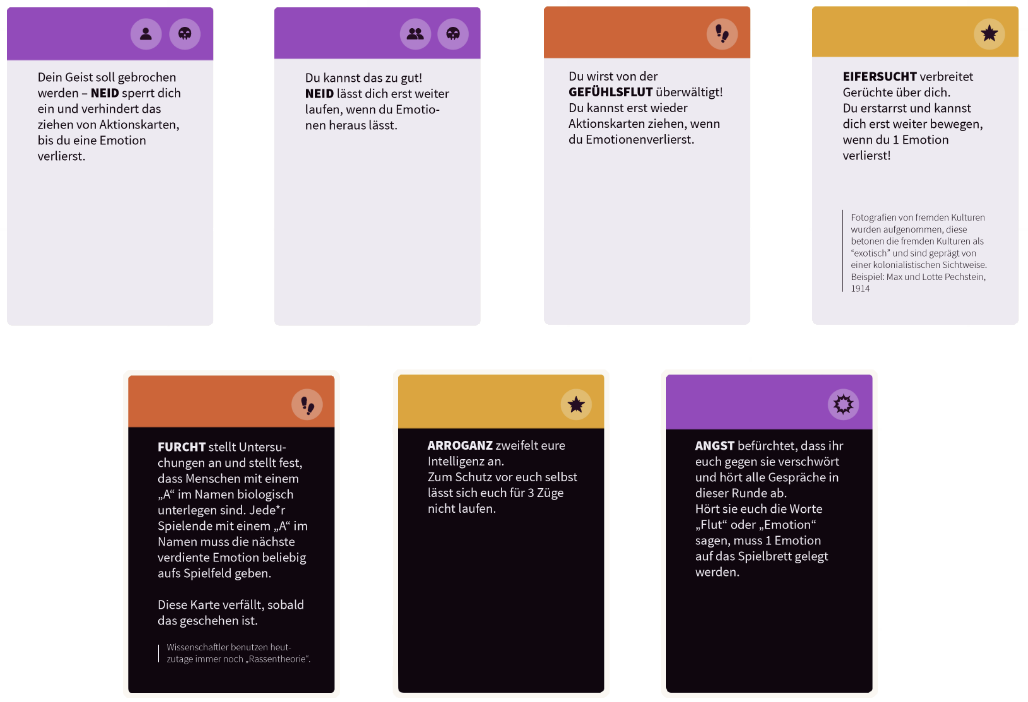
The colors we settled with.
To help players focus on the content of the texts and to accommodate the abstract setting, we kept the design of the playing cards clean and simple. The back of the cards was accompanied by either the Flood-Of-Emotions or a set of avatars in the colors of the player-card types. We purposefully used black as the color of the player-cards to mess with the common association of black being used for enemies or villains and vice versa.
The final layout of the board

The back of the Flood-Of-Emotion action cards

The back of the player action cards
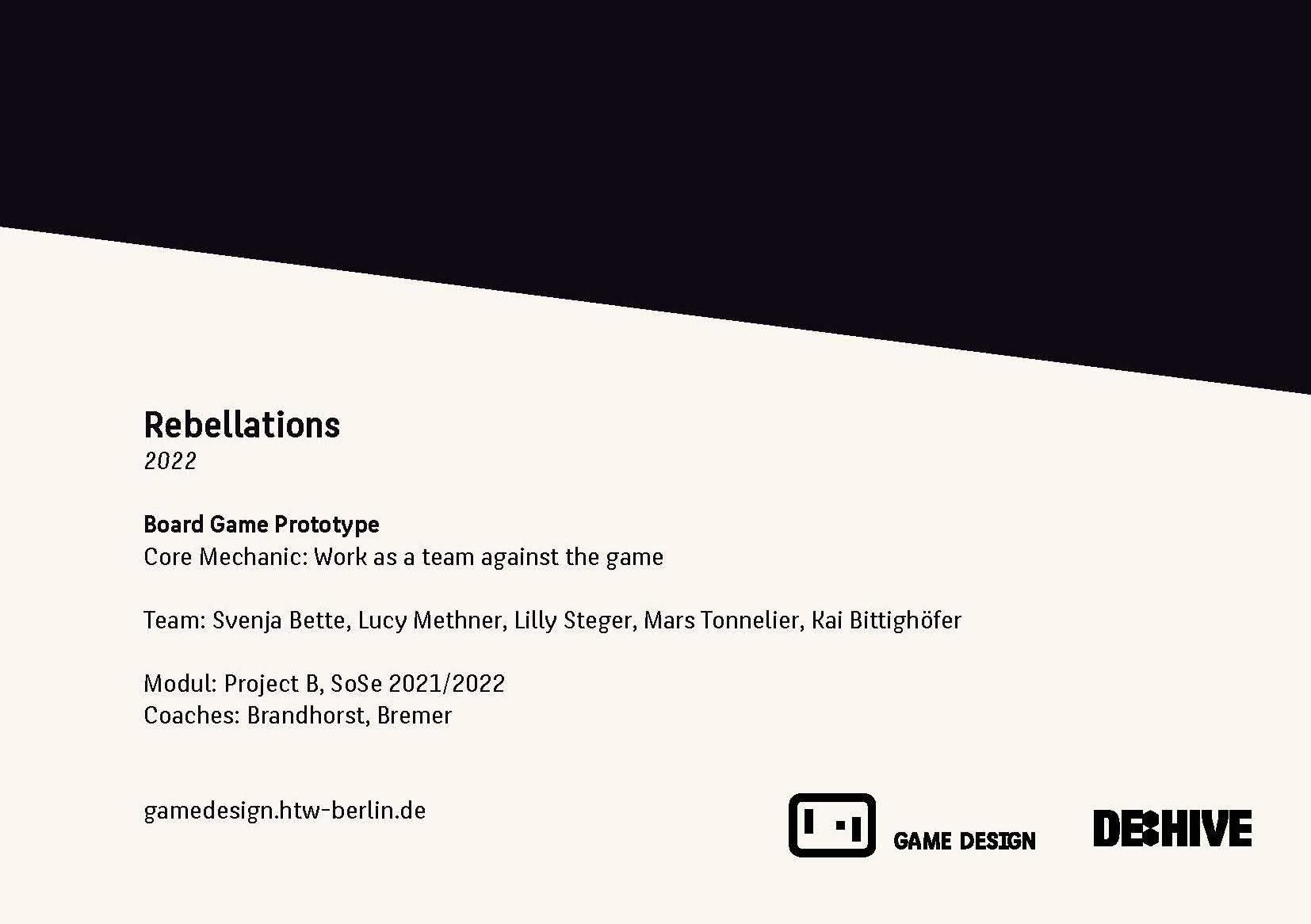
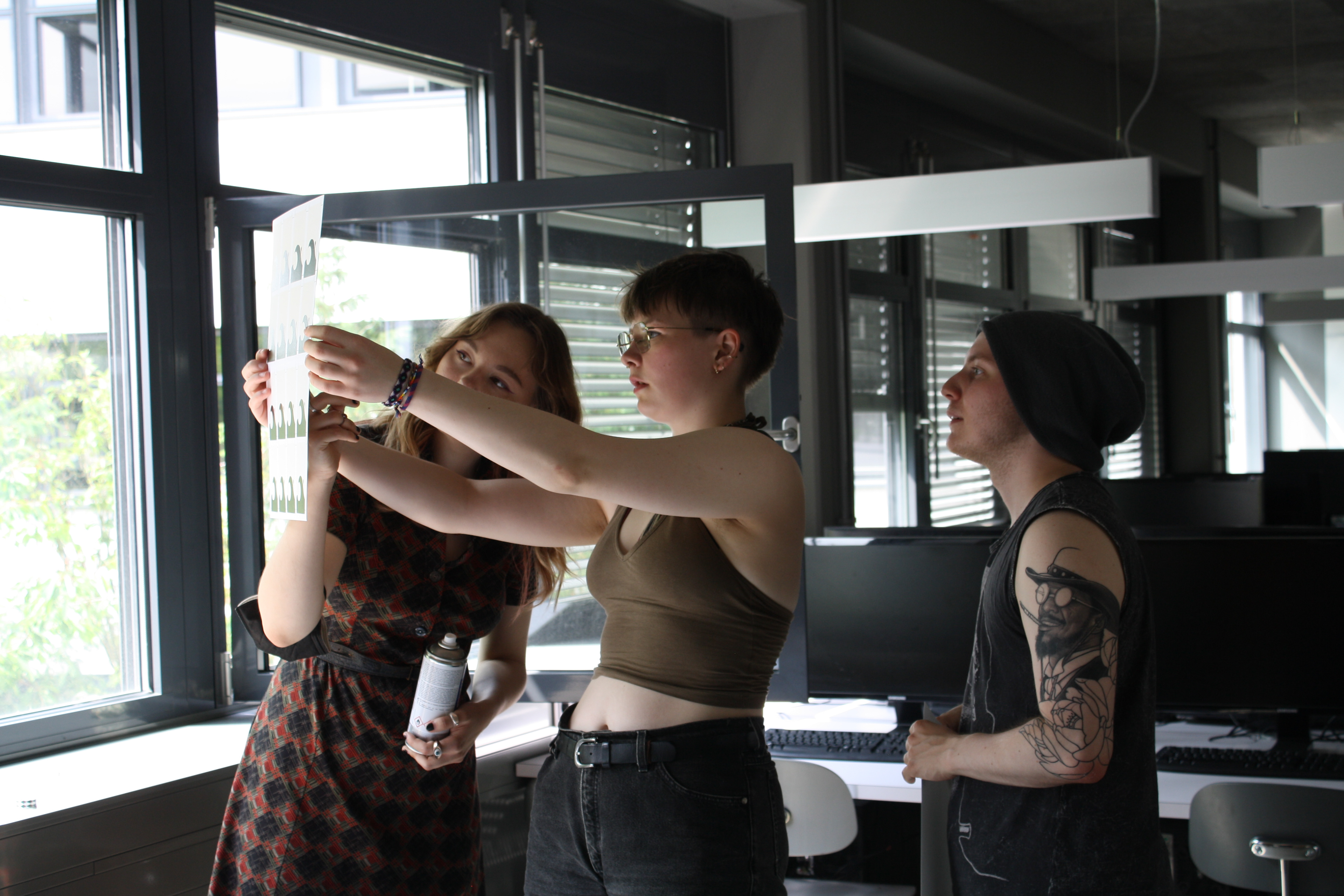
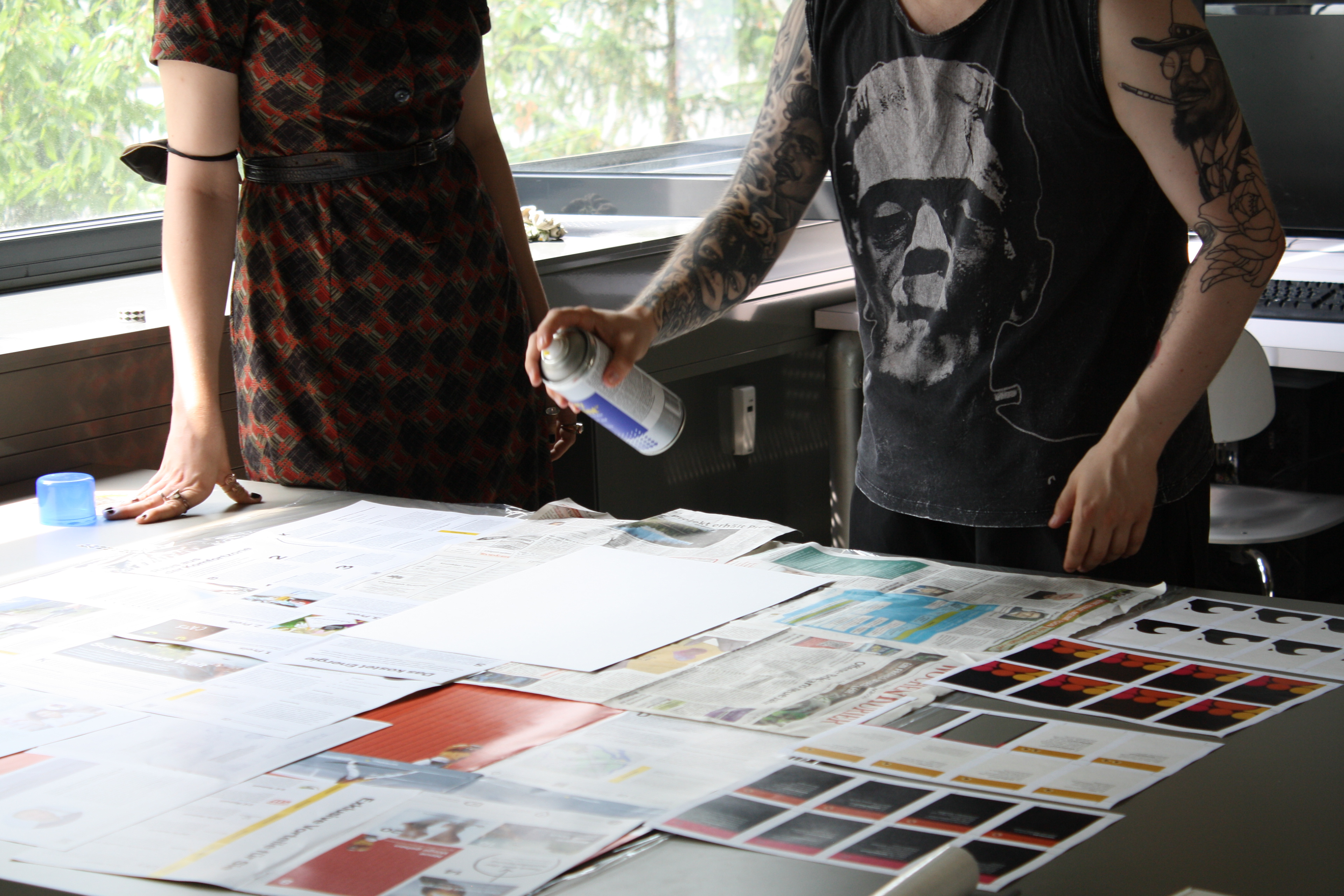
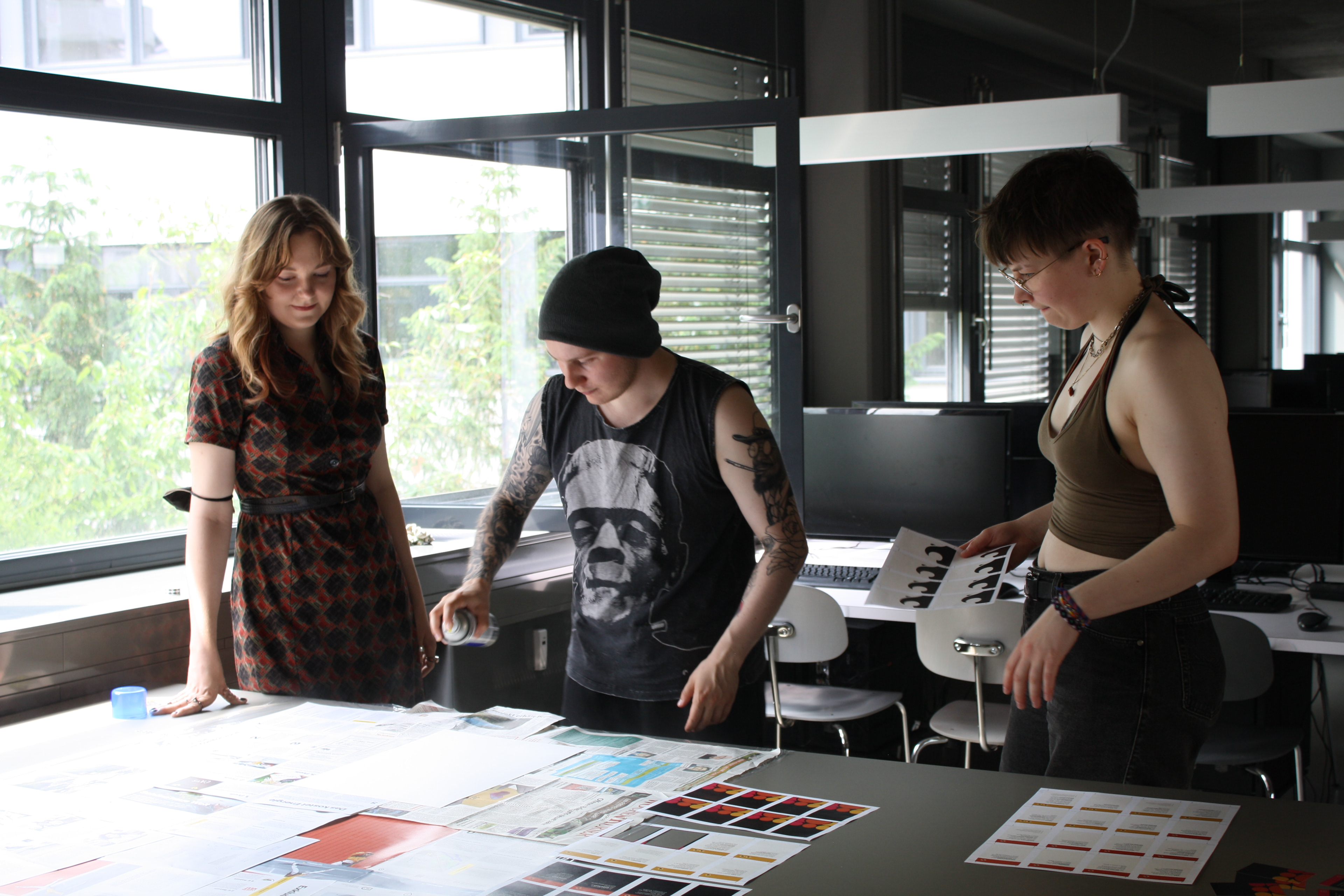
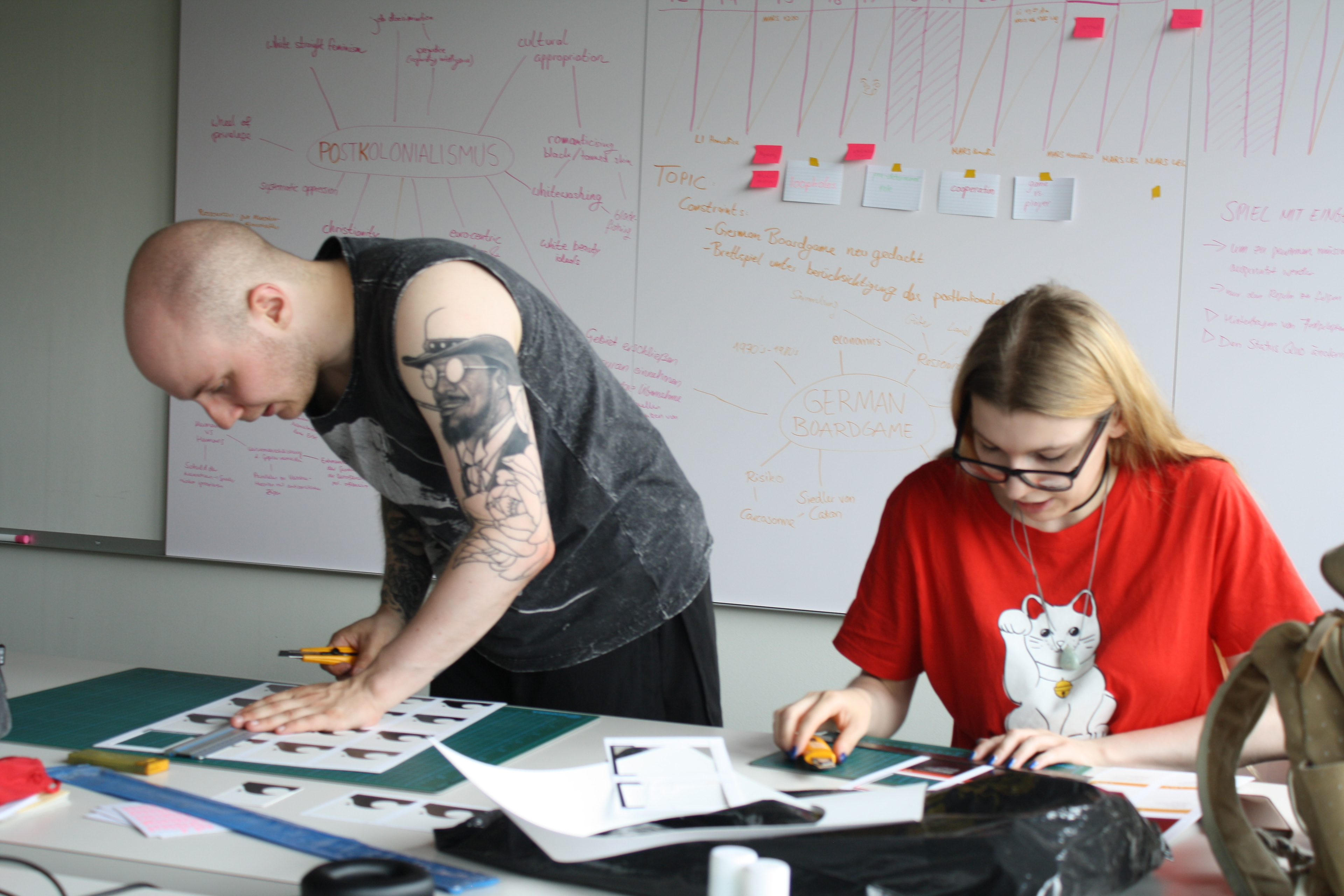
We handled the production of the components on our own. For the cards, we printed each side of them on thick paper, spraying the back with glue and sticking them together. After the glue dried, we manually cut them out.
It was an extremely satisfying feeling to see our assembled game, even though we had to supplement some elements with prototyping material in the studio.
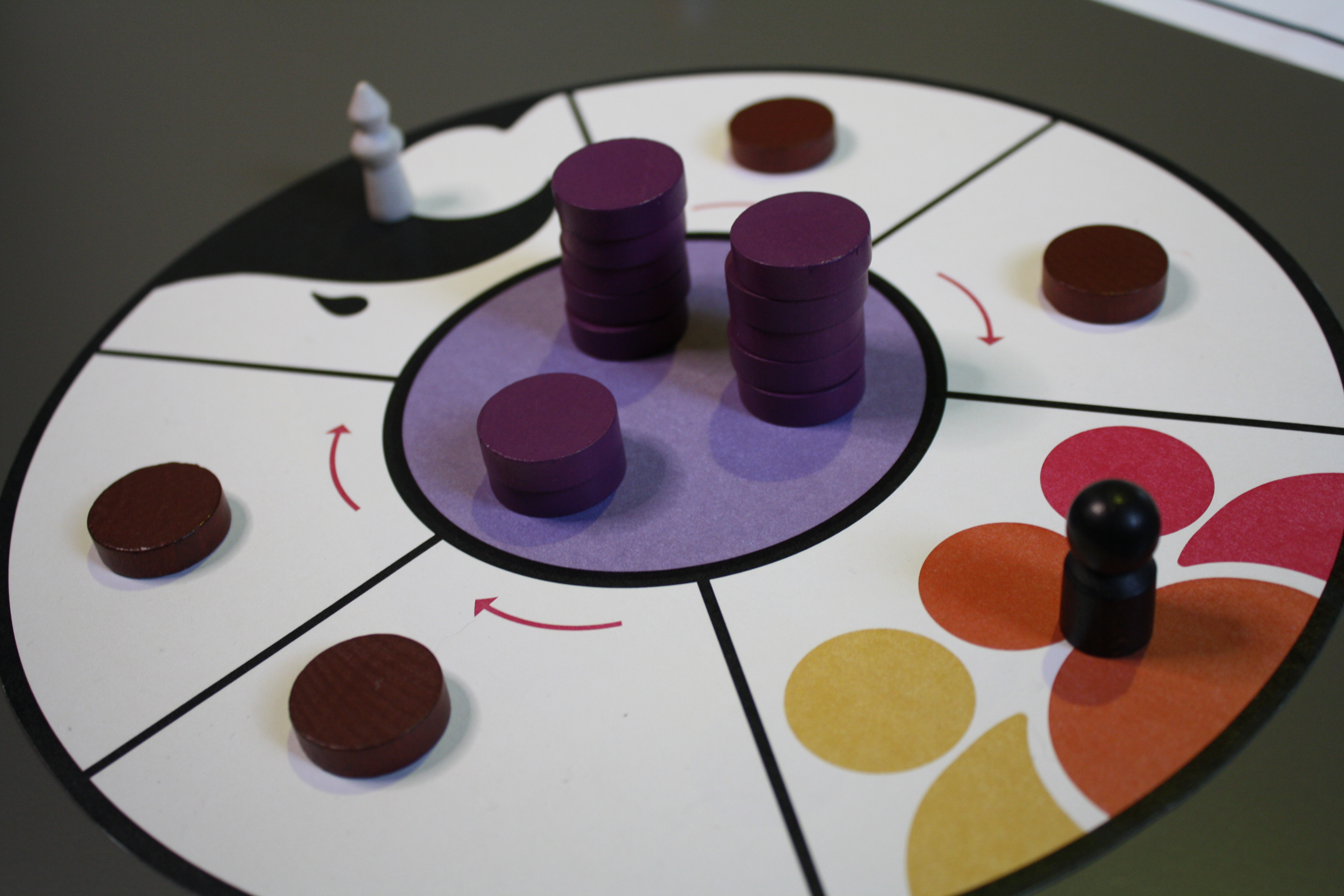
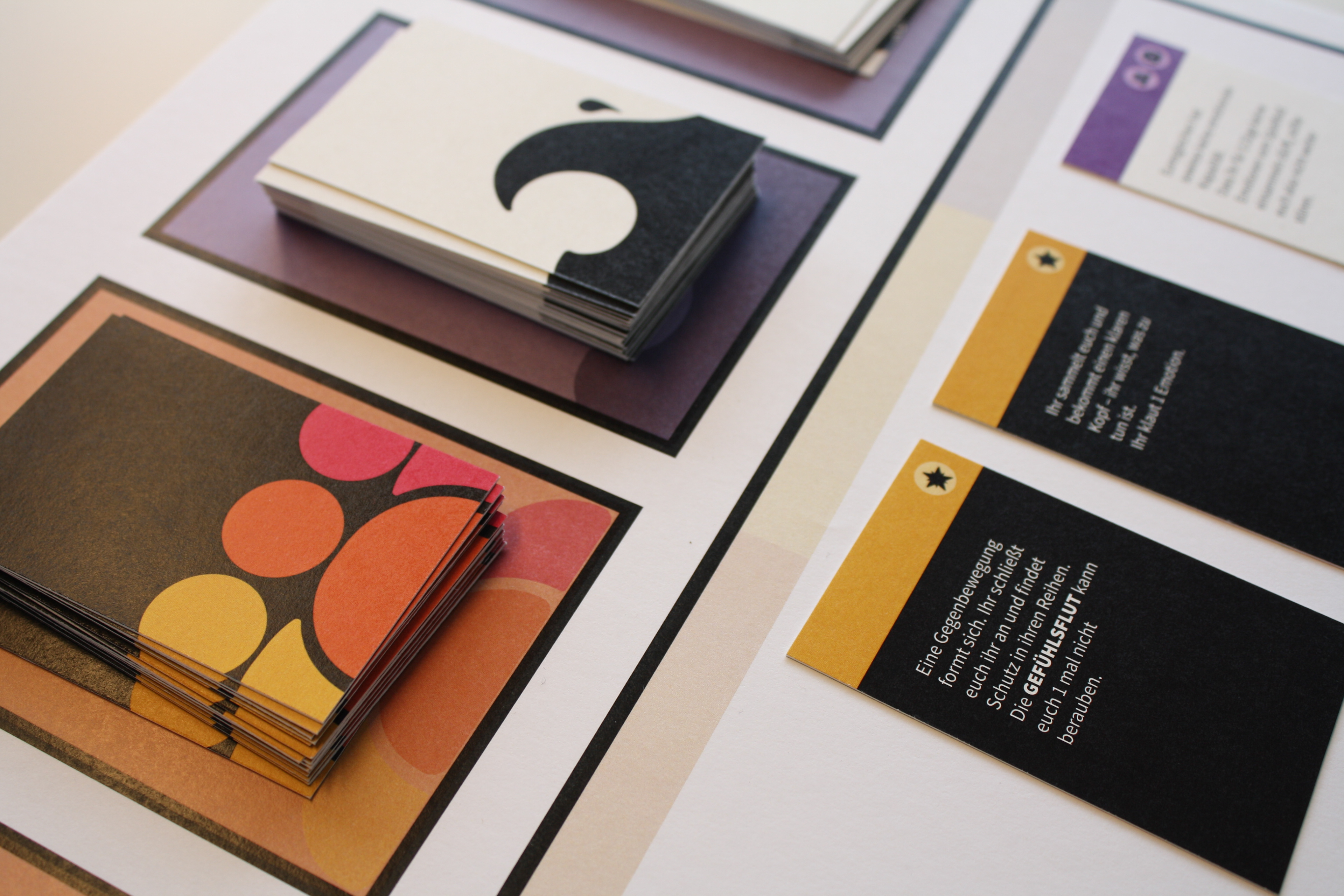
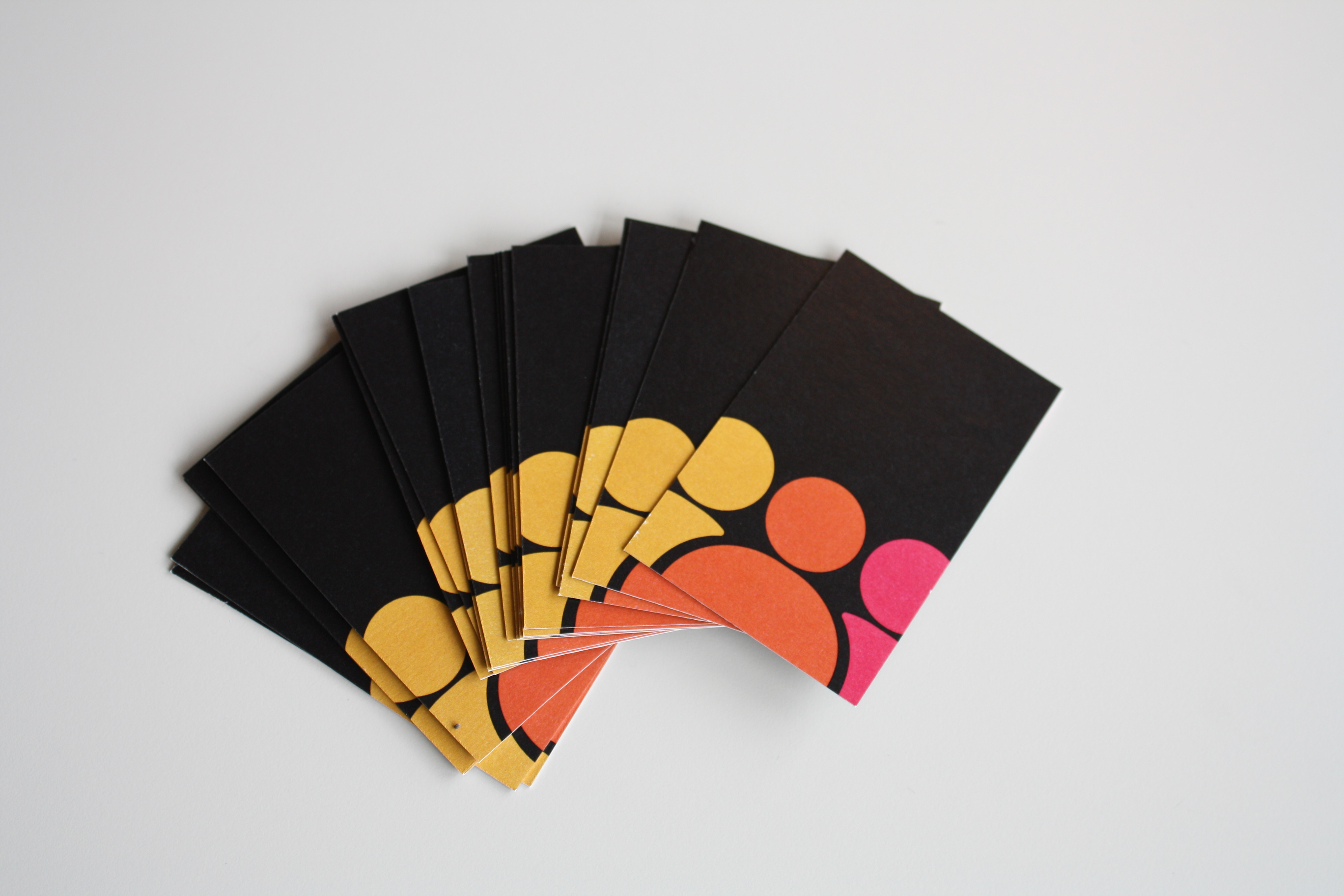
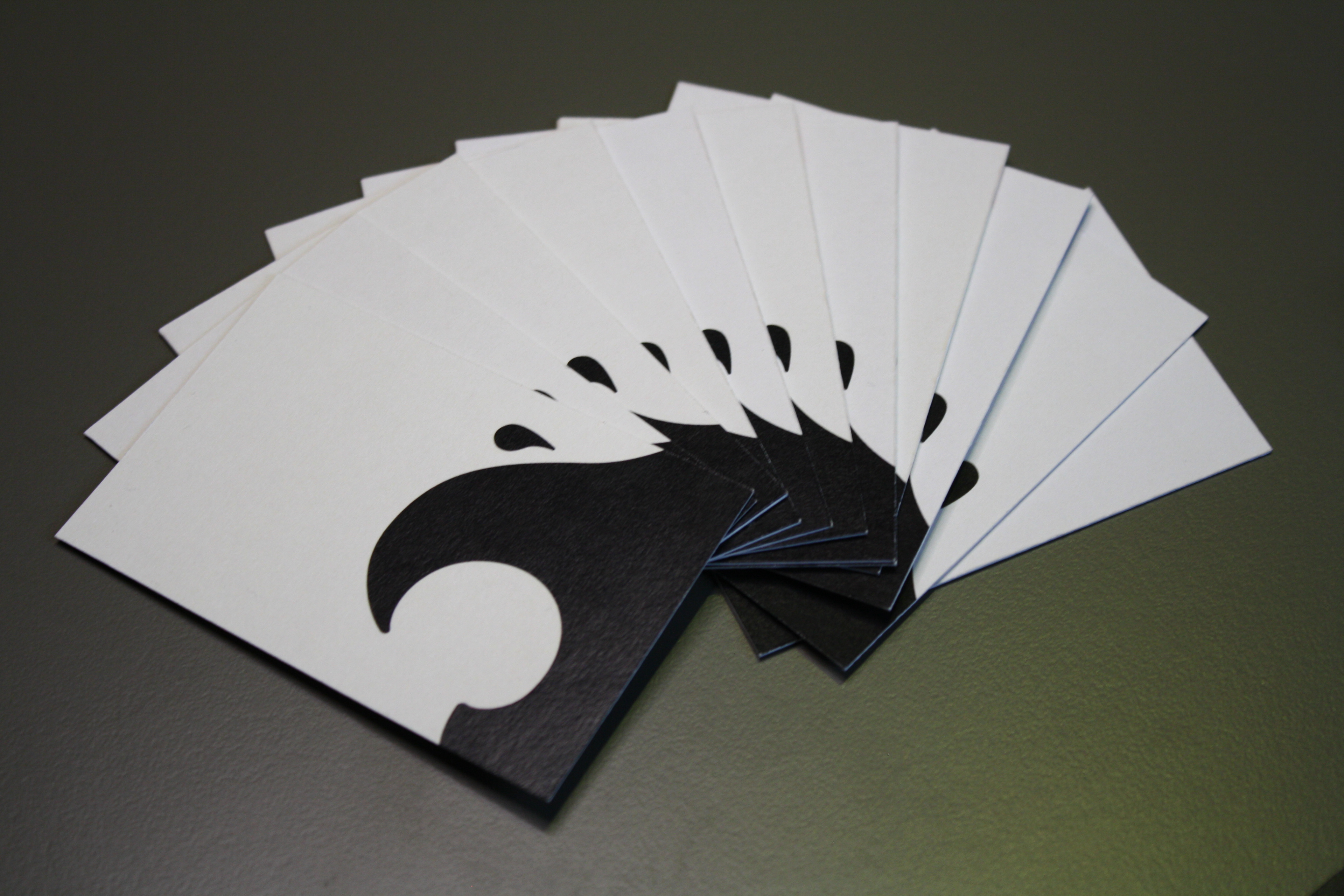
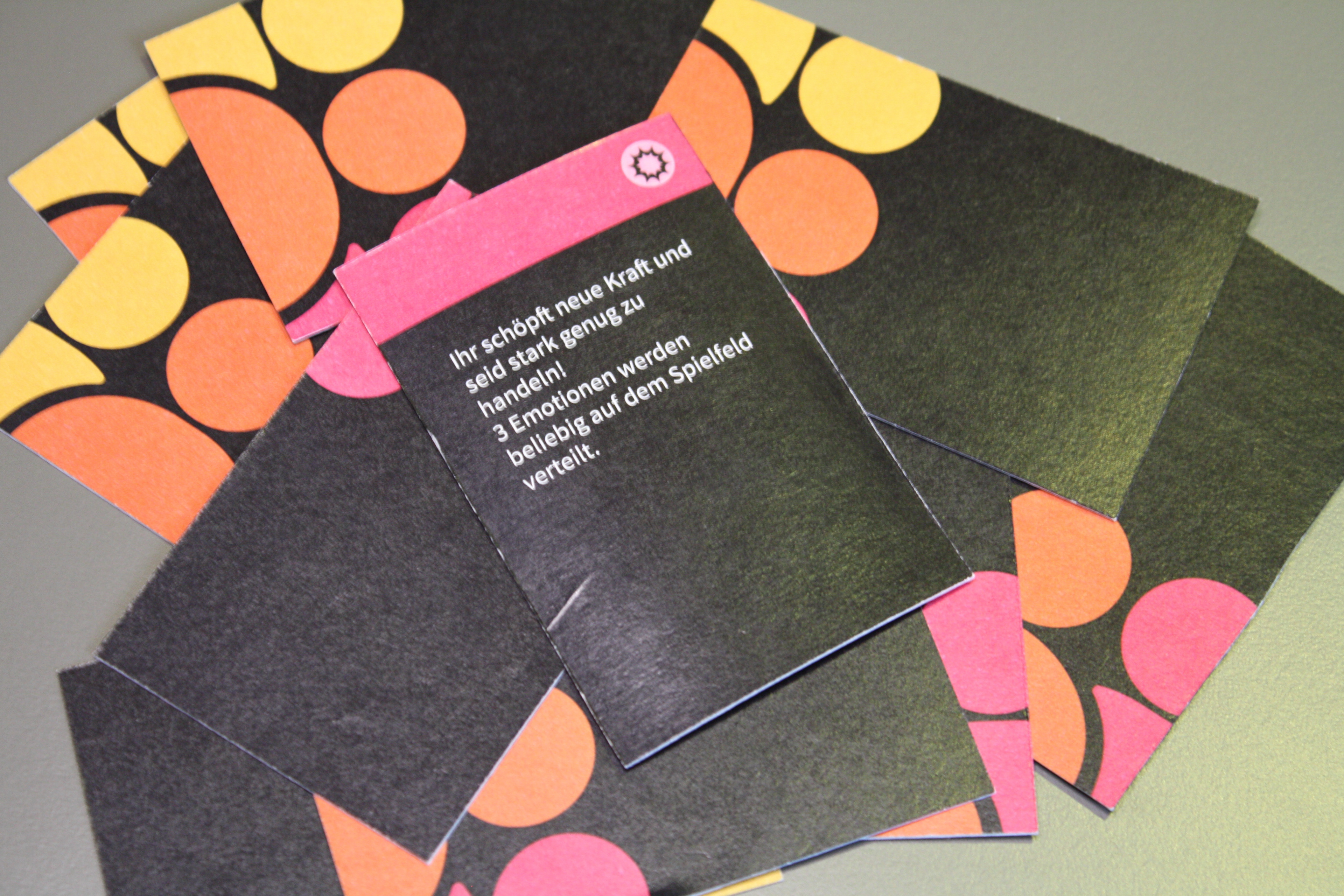
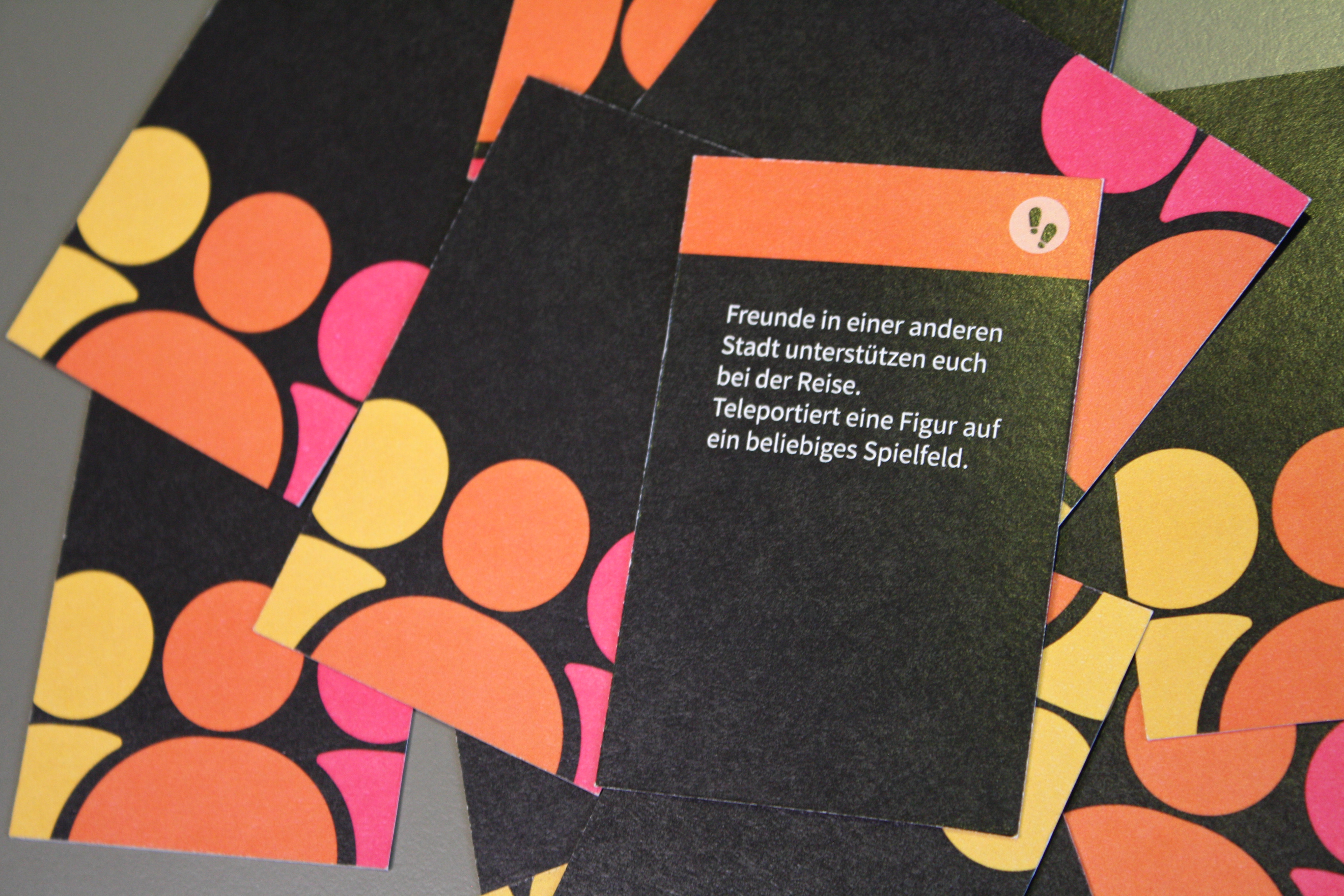
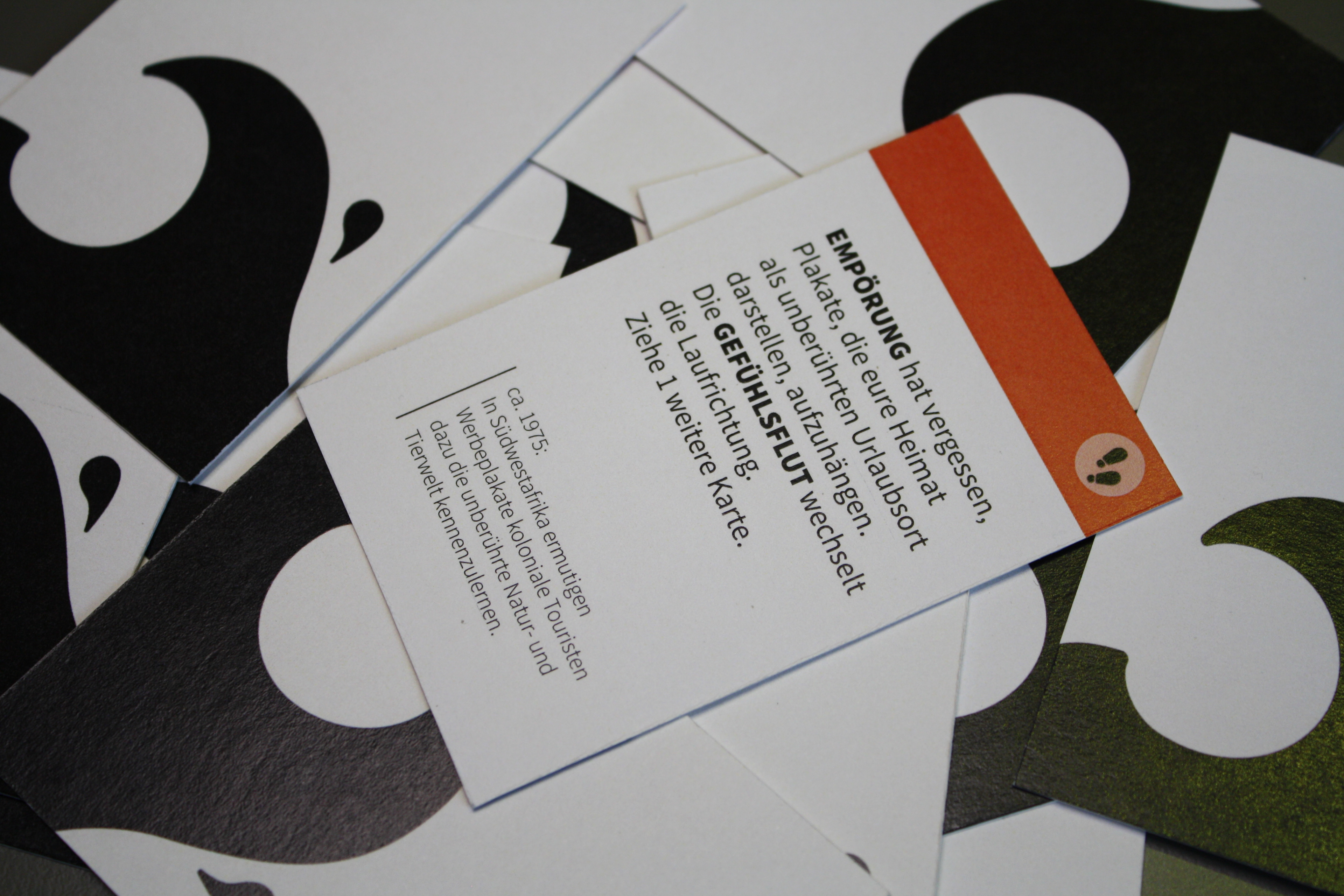
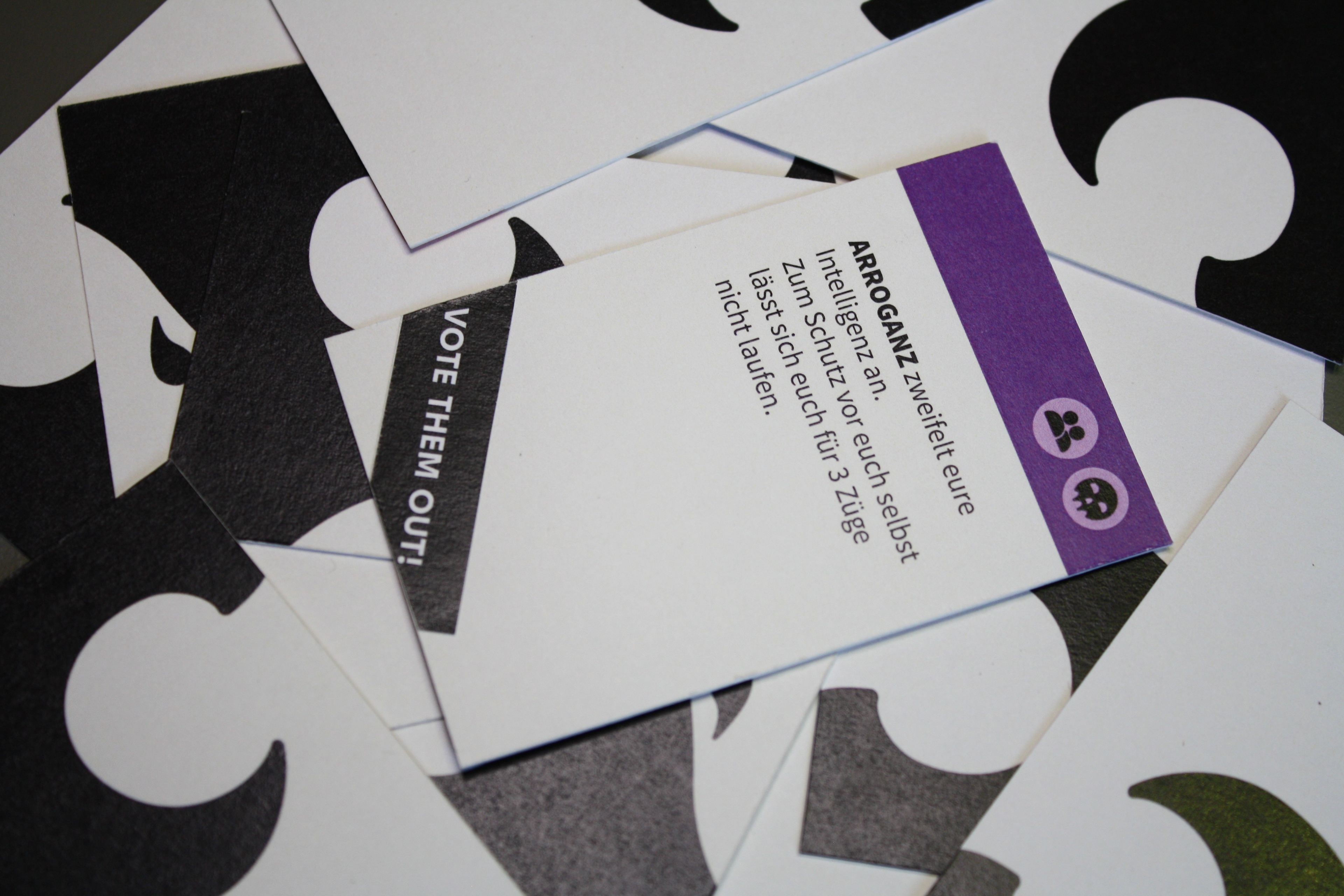
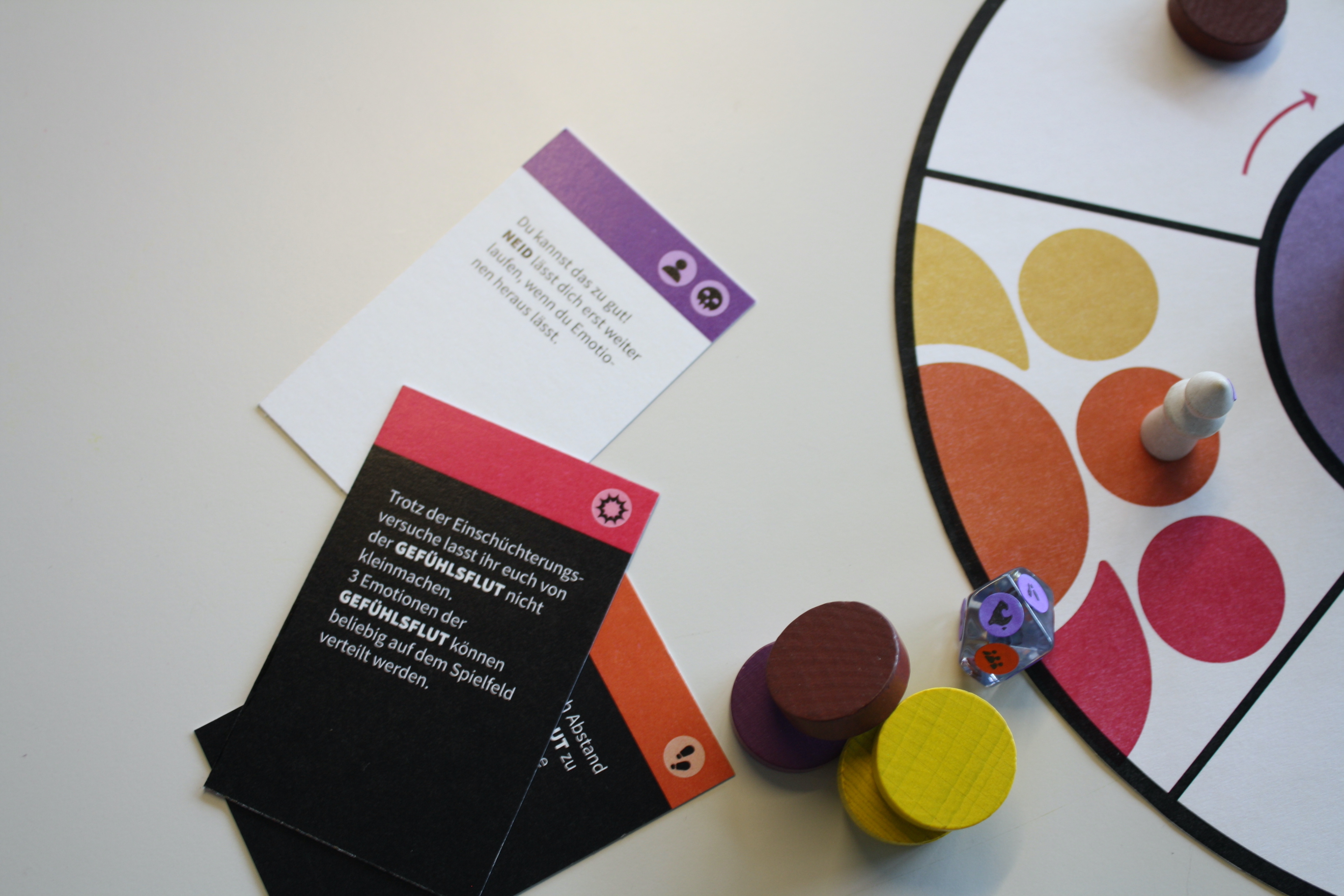
Our play-testers gave us positive feedback about their experience. It was always very fun to observe the different ways in which people would exploit the loopholes.
It was very important to us to serve an enjoyable player-experience, even though our game deals with a serious topic. To make players aware, we deemed it unproductive to make them feel like they are being lectured.
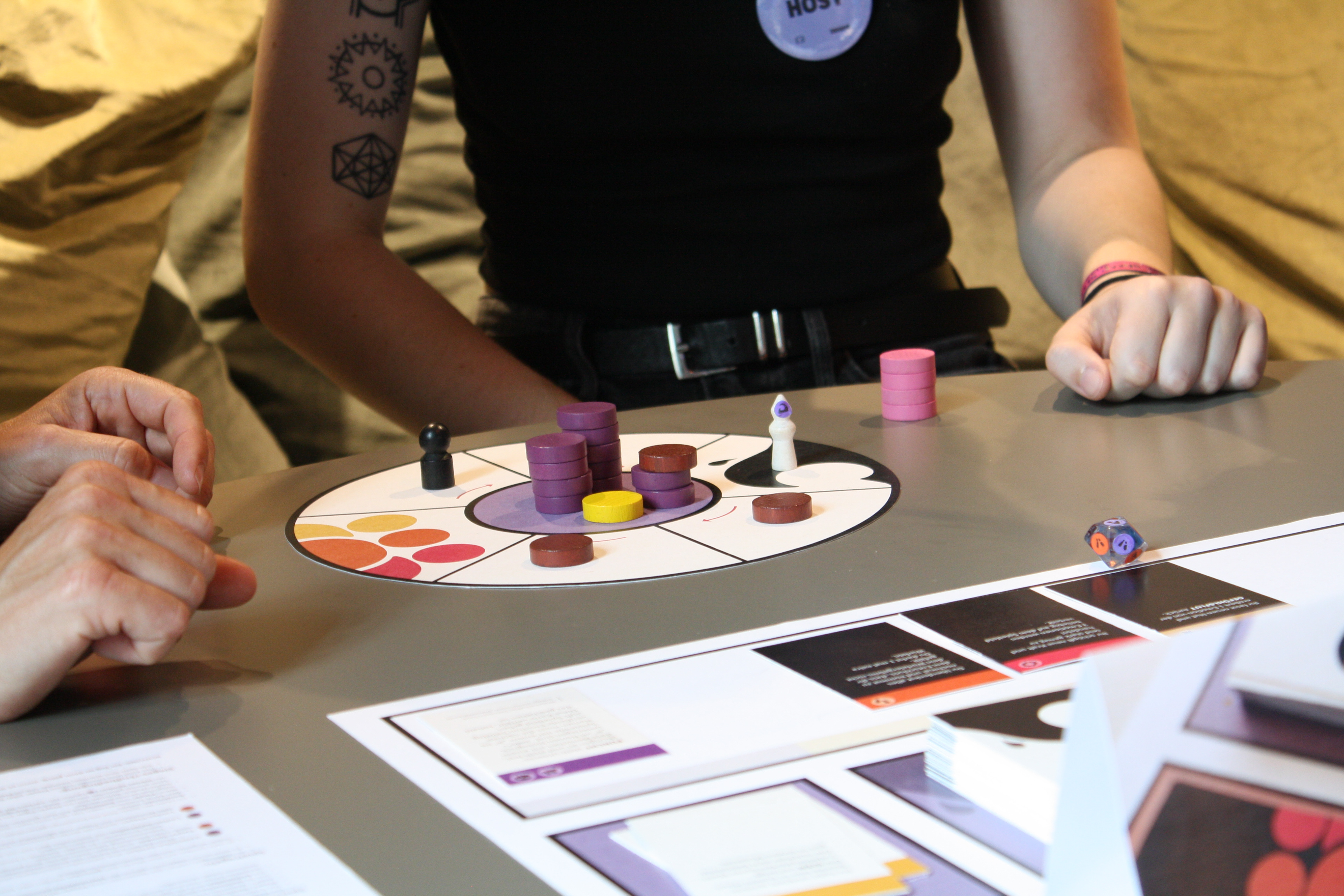
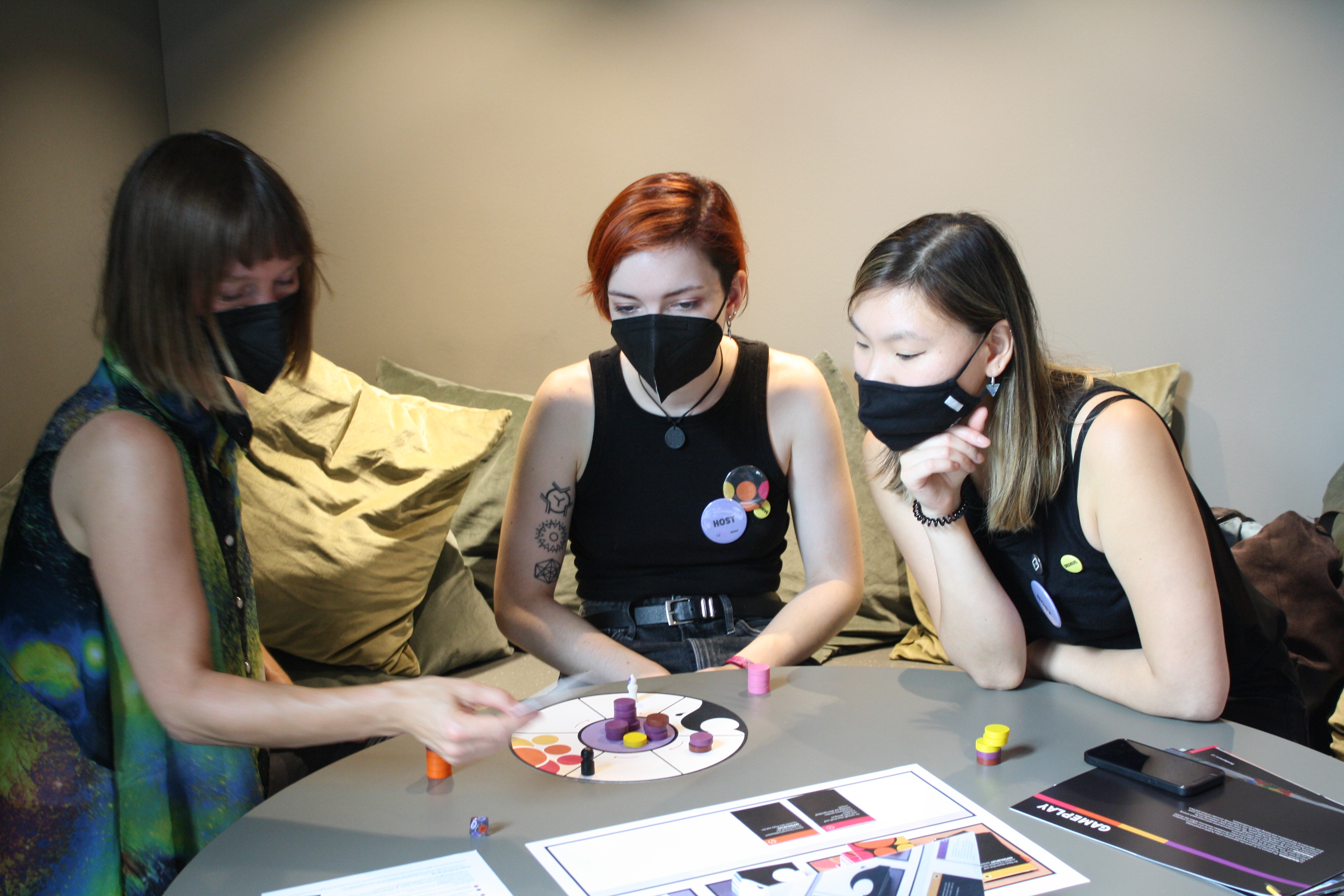
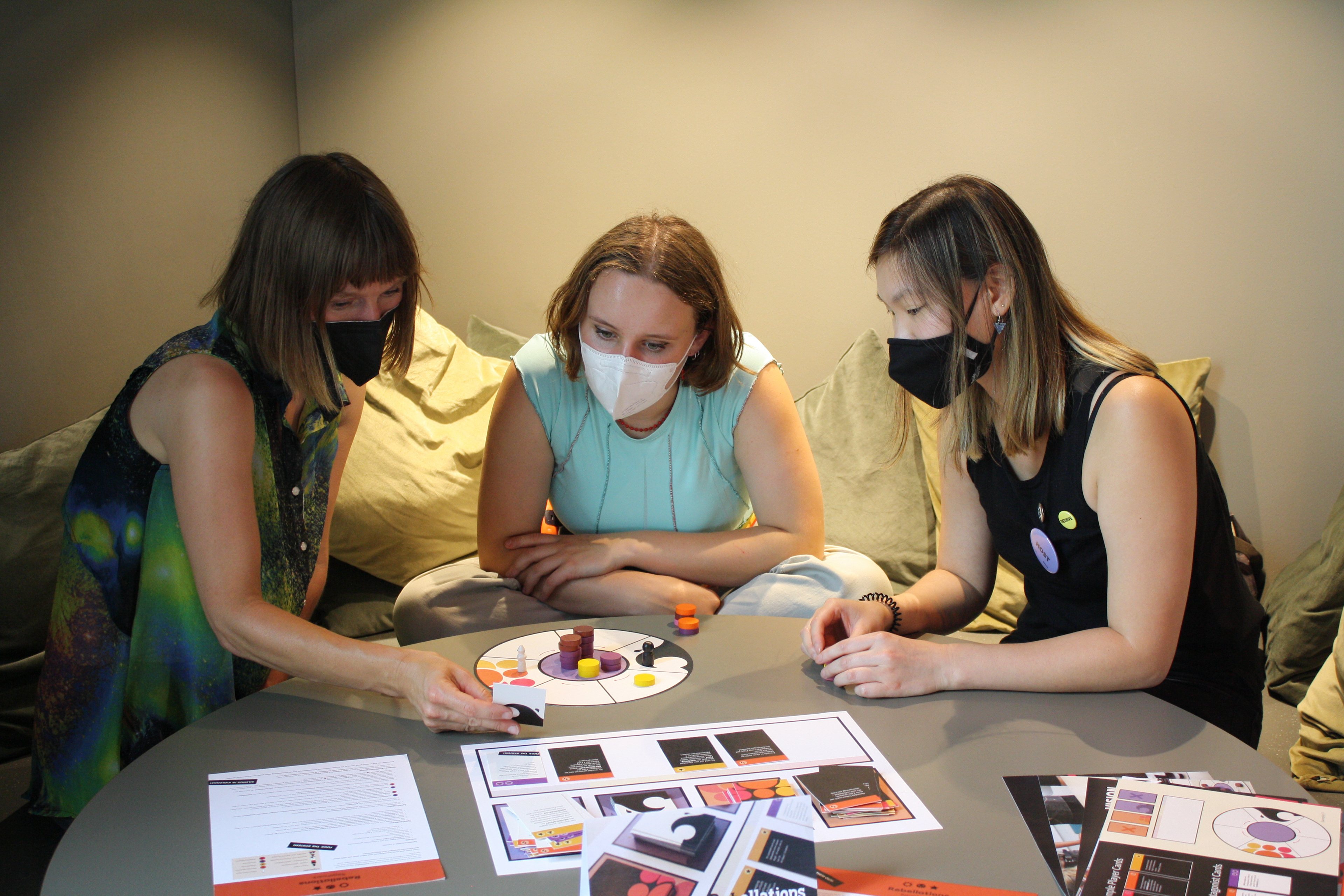
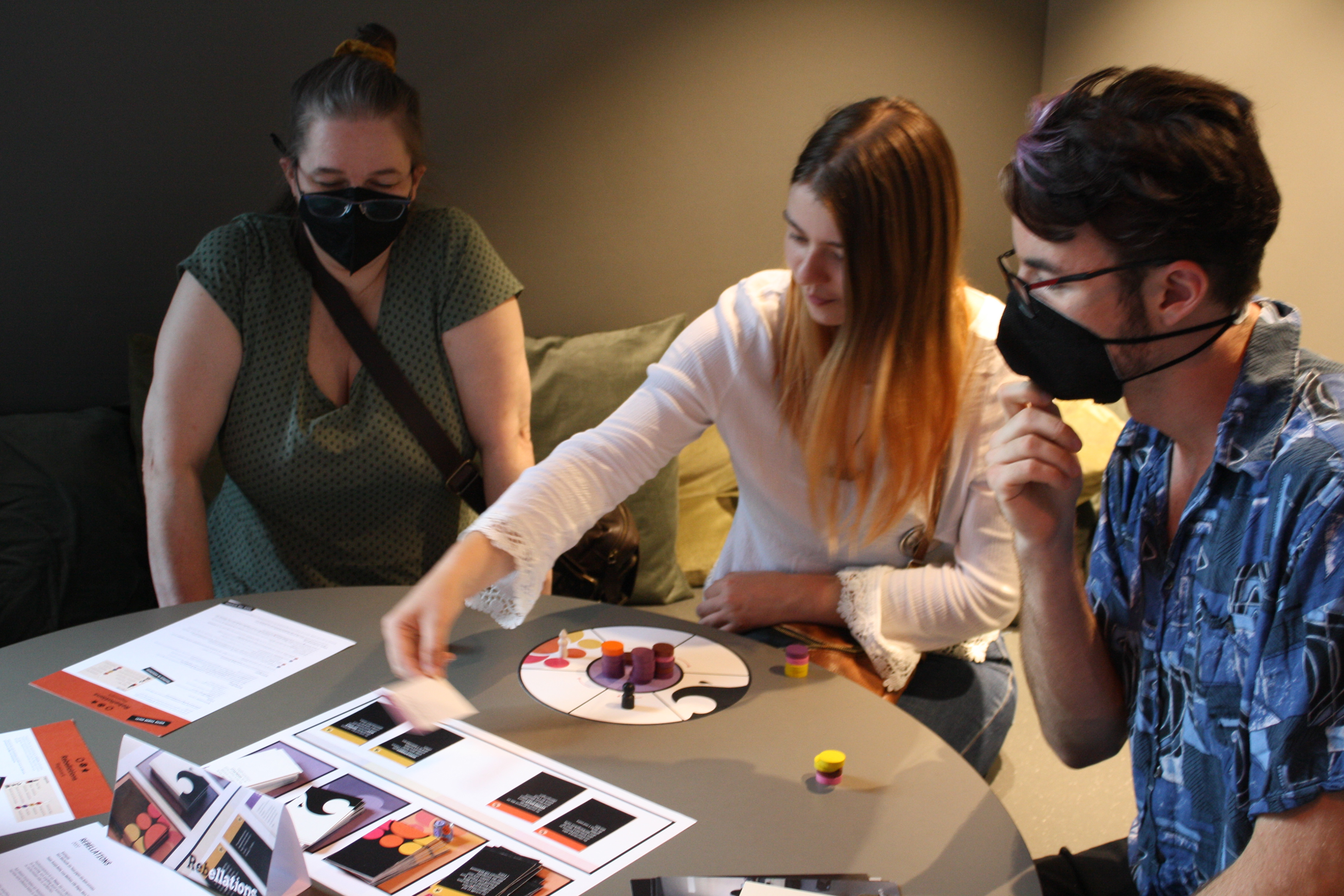
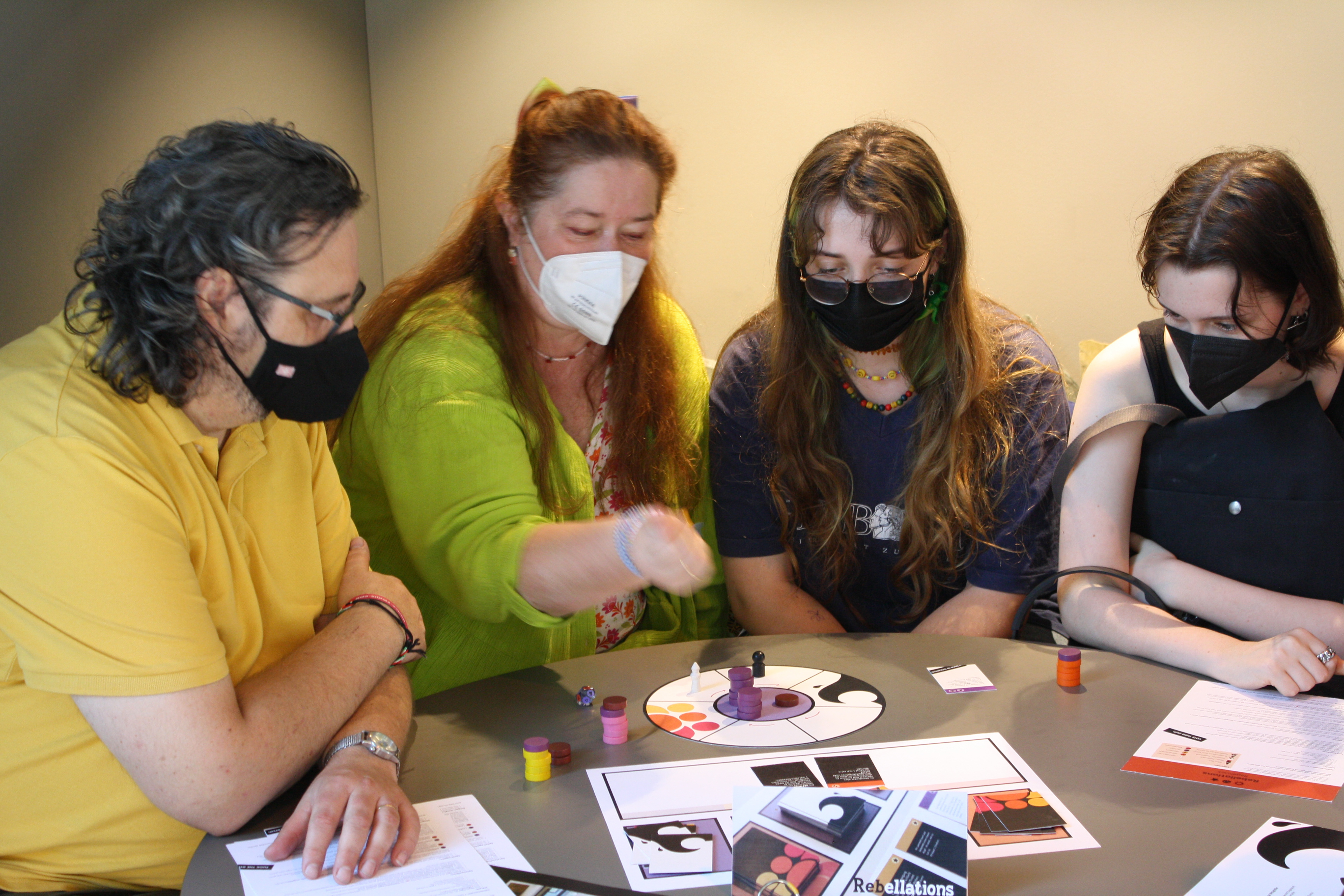
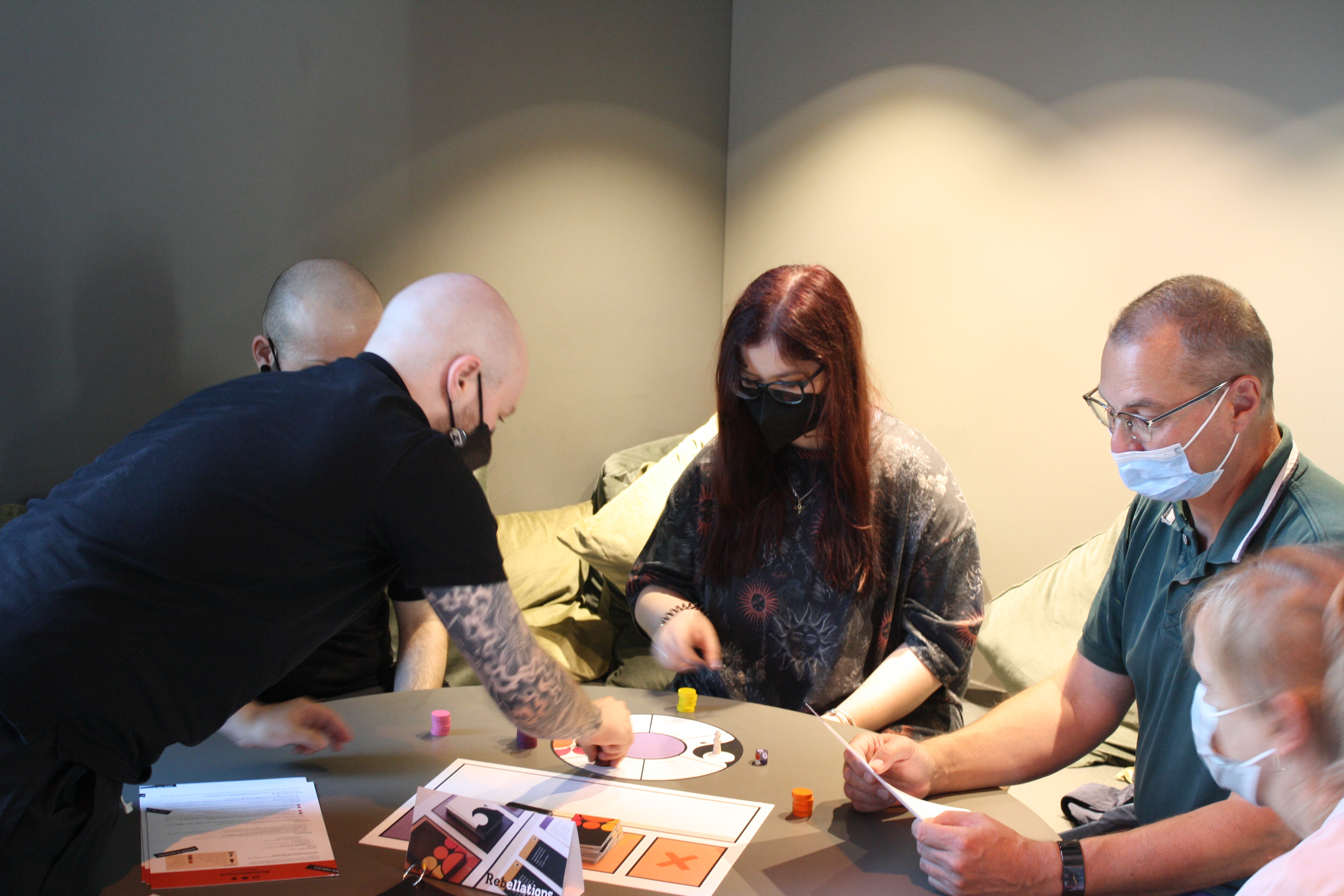
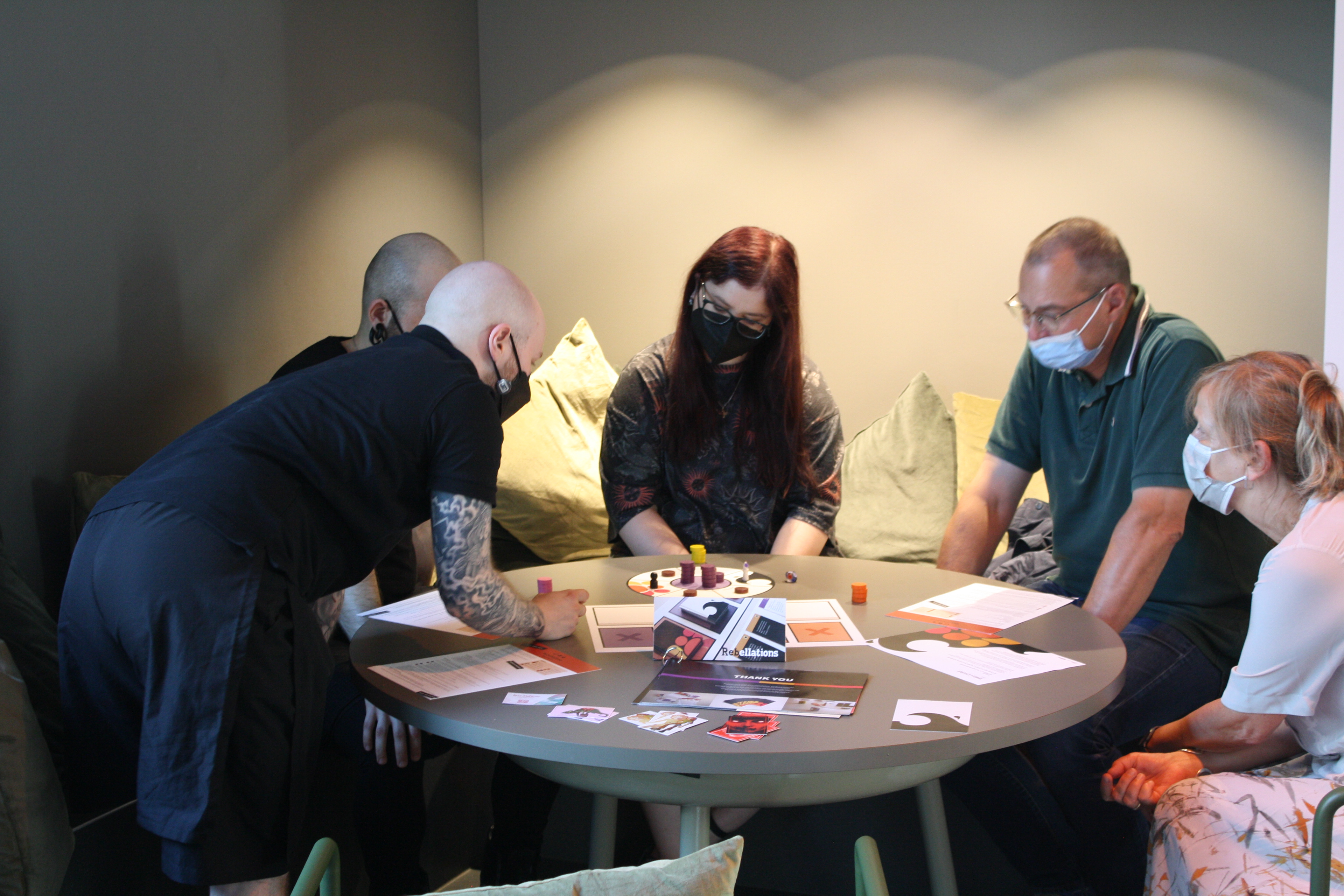
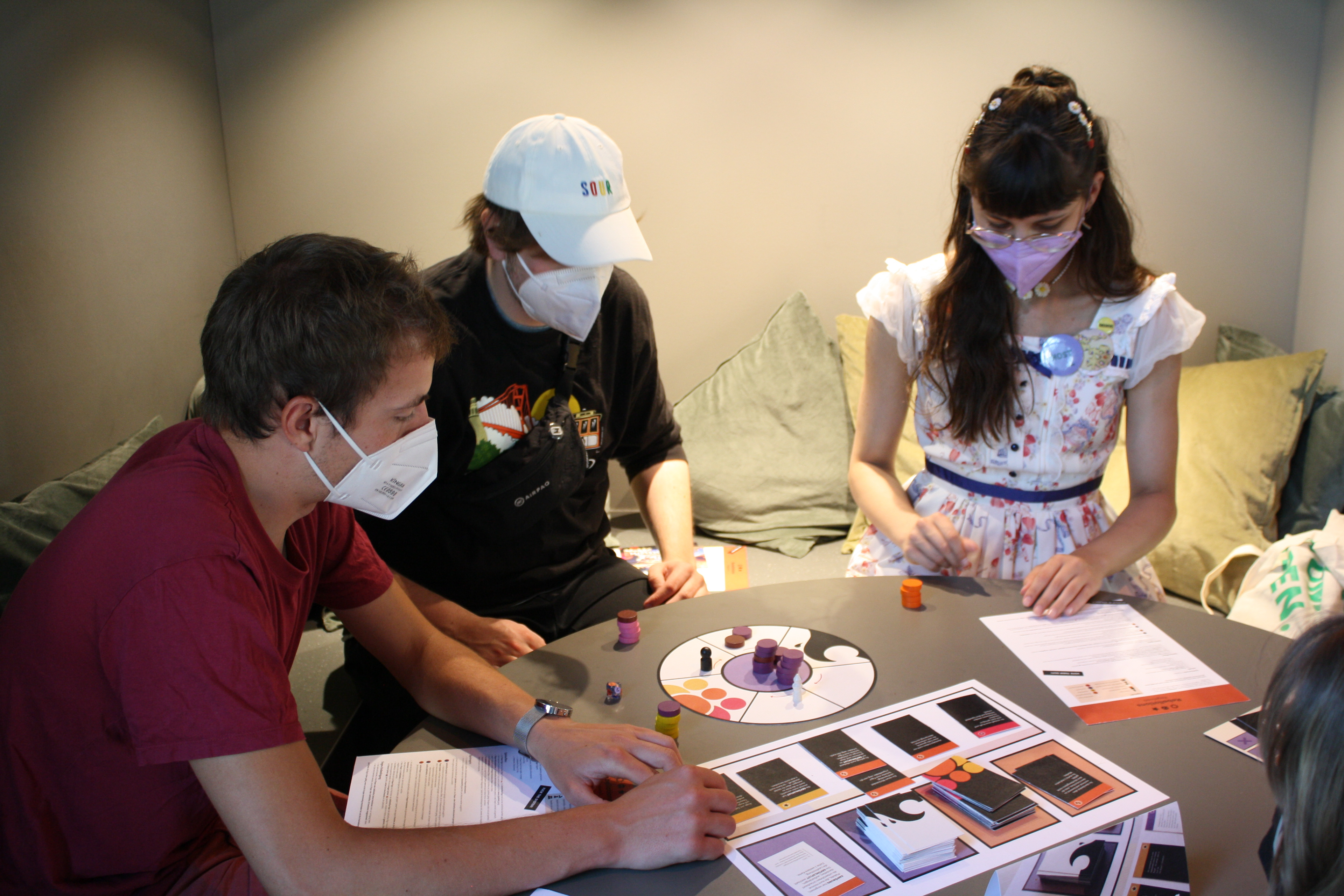
conclusion
Although it has been an enjoyable change of pace not having to program something, the most valuable thing we have learned with this project was the importance of intent and thought put behind the messages of a game. As we did our research, we became more aware of problematic implications of games like German board games. In the past, it has often been about colonizing an unknown land with little to no regard to natives or their belongings. As game designers, we do have a certain responsibility, as our work does have an impact on culture itself.
We decided early on, that we were in no position to put the players in the role of a victim, as our entire development team was white and therefore it would have been absolutely inappropriate to speak for actual survivors and victims of colonialism. We also wanted to avoid pointing fingers at other countries, as it is always easy to shift blame. But the fact of the matter is, that colonialism is part of German history and something we need to recognize, acknowledge and work through.
Putting a group of people either on the opponent or players side would create a setting of antagonizing a country or an ethnic group, which we did not want to do. We also did not want to create a narrative in which a group of people needed protection. That's why we settled for an abstract setting, that addresses the negative feelings of every human being, that lead to actions that cause something like colonialism.
Our game is about recognizing unjust structures, that are dictated as fact and cannot remain unquestioned. To achieve cultural and political change, we must work together.
Our team: Lilly Steger, Kai Bittighöfer, Lucy Methner, Svenja Bette, Mars Tonnelier
